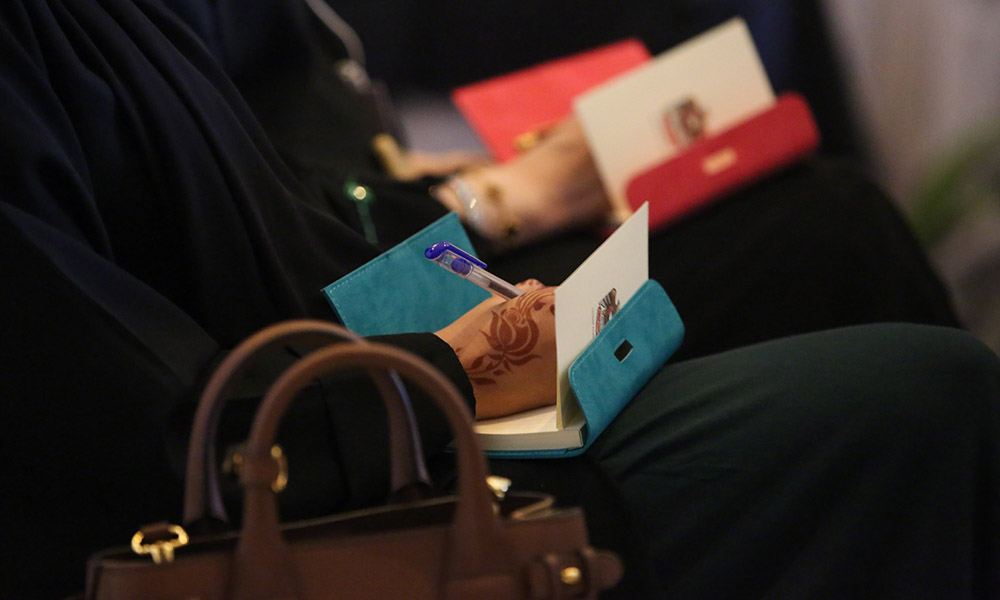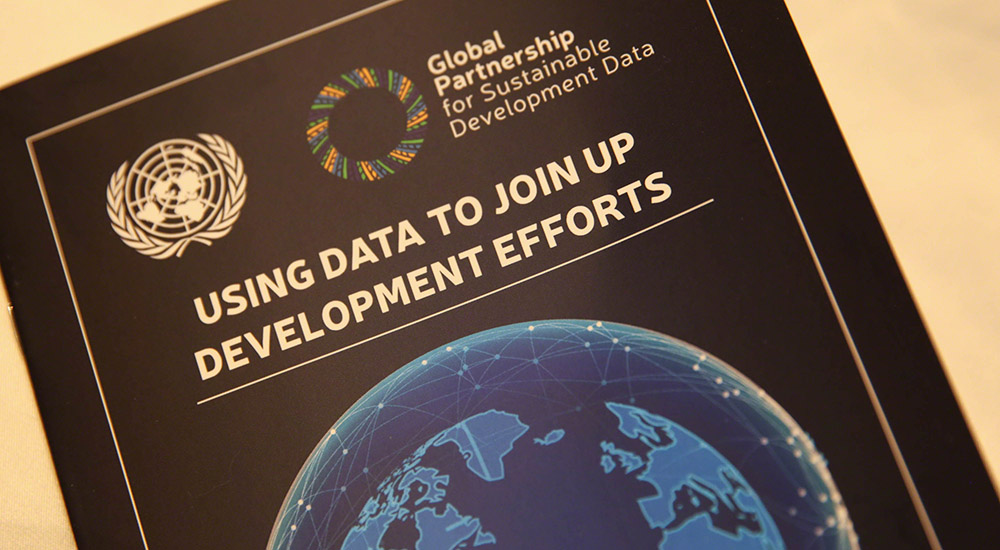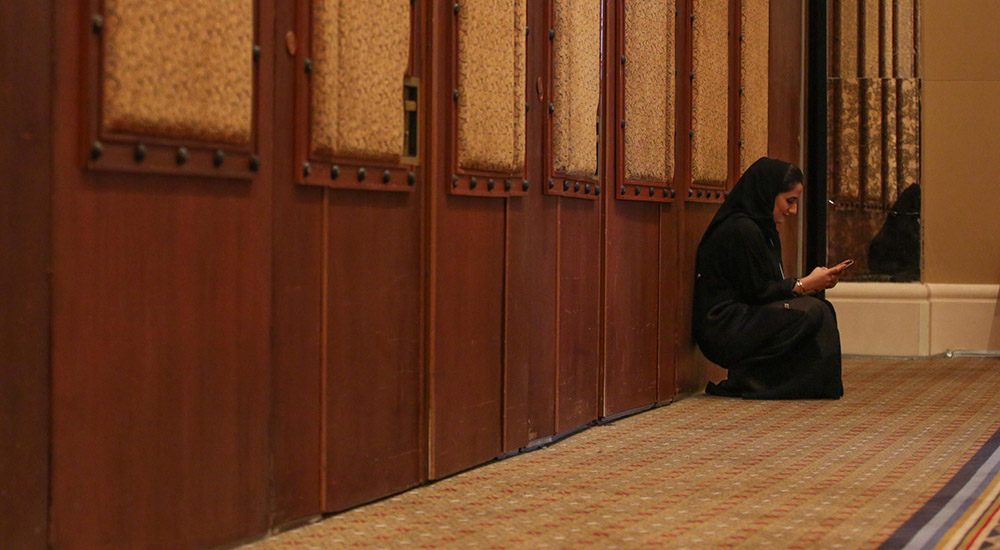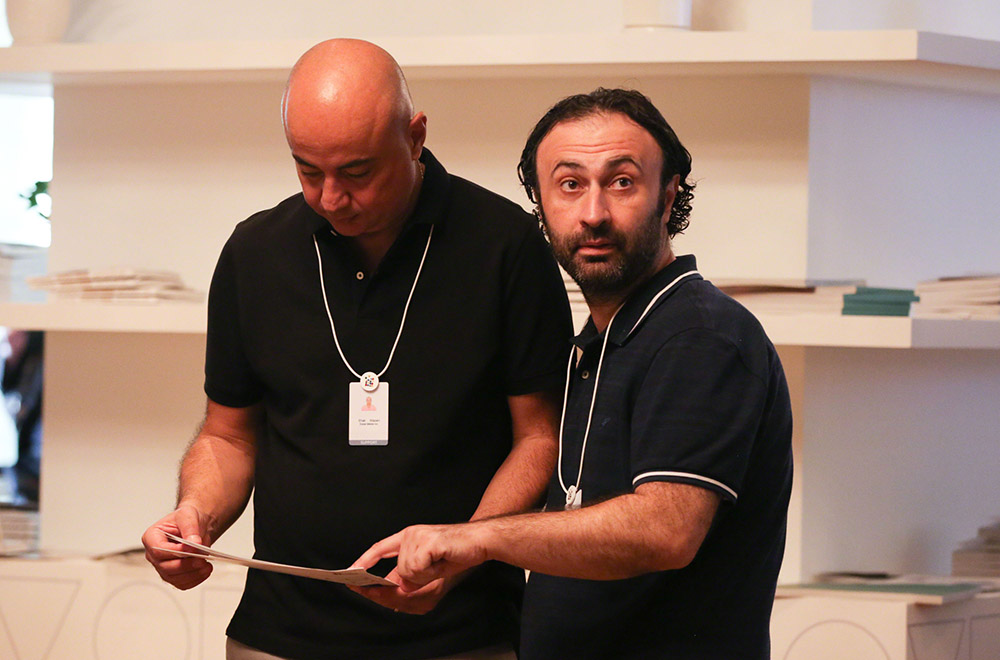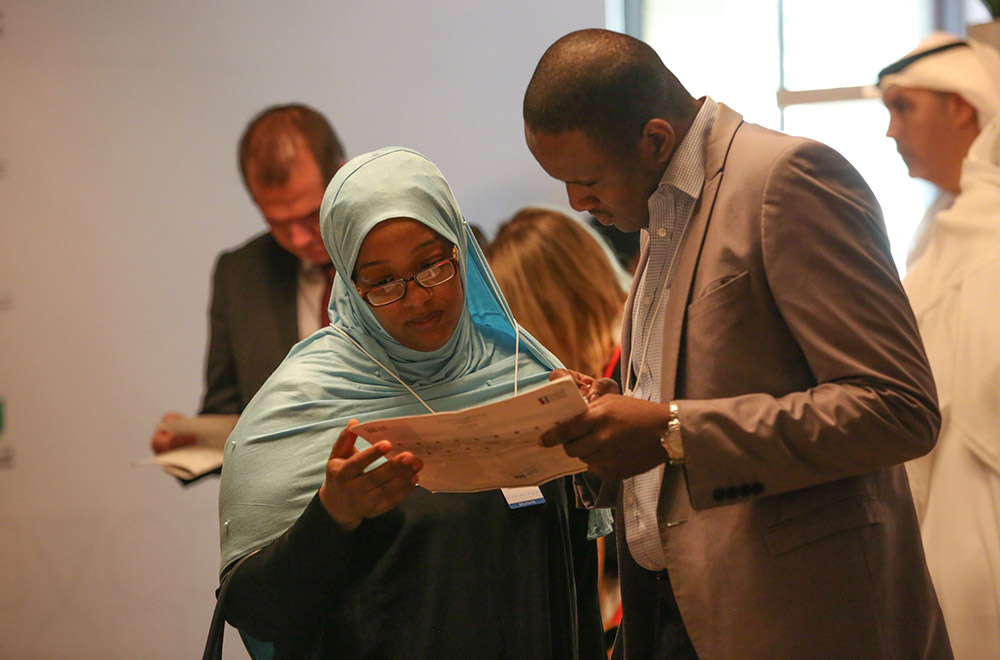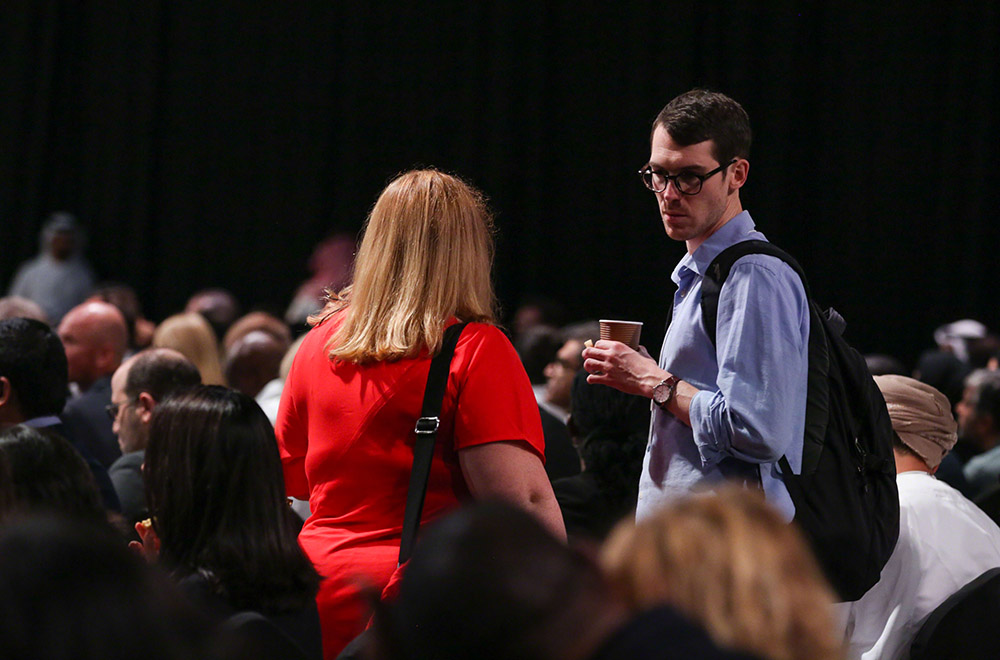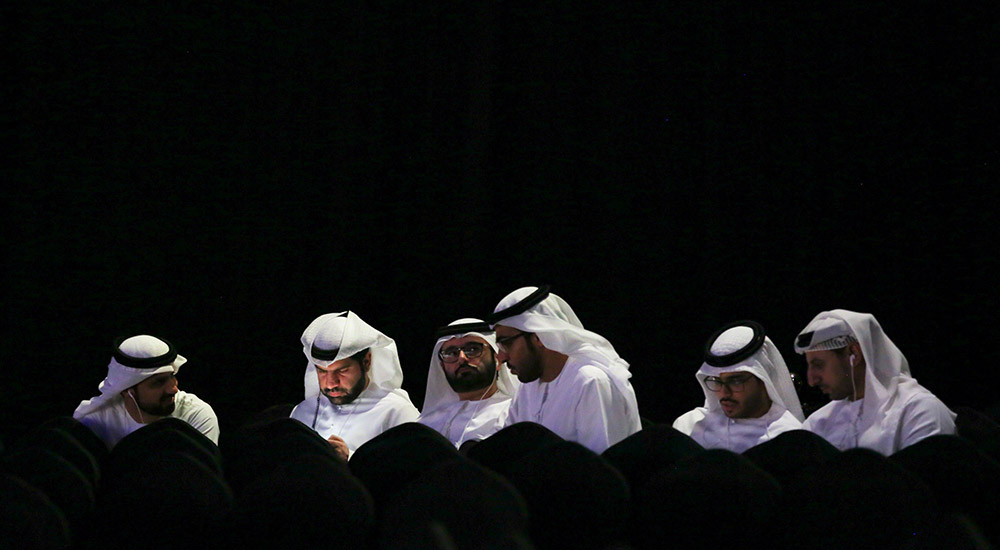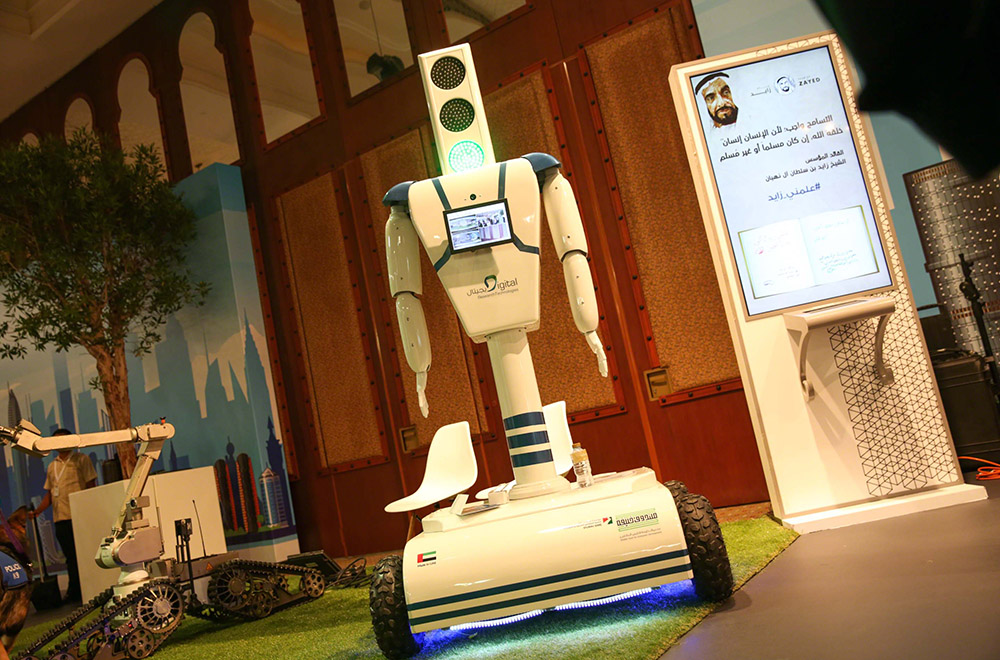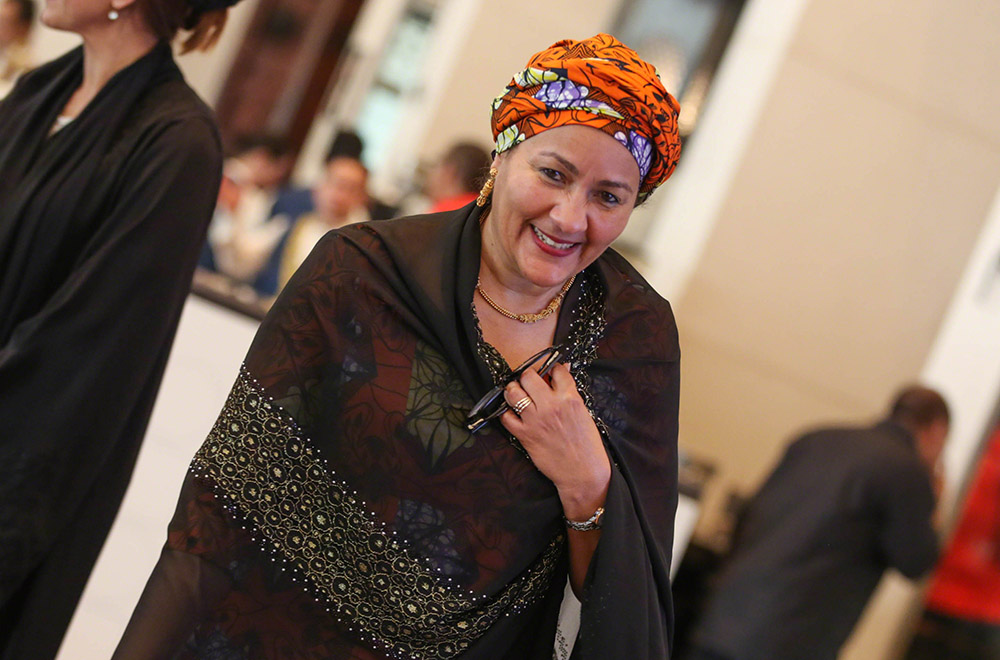
UN Deputy Secretary-General Amina J. Mohammed attending the World Data Forum
 The second UN World Data Forum opened on Monday, 22 October 2018. During the opening plenary, Liu Zhenmin, Under-Secretary-General, UN Department of Economic and Social Affairs, reflected on the value of the Forum to implementing the SDGs and guiding international development policy through the successful integration of economic, social and environmental data. He highlighted the importance of removing barriers to new data sources and modernizing national statistical systems to meet new data demands. High-level statements were offered by Abdulla Nasser Lootah, Director General, Federal Competitiveness and Statistics Authority, United Arab Emirates, and Amina Mohammed, UN Deputy Secretary-General. Lootah thanked Sheikh Mohammed bin Rashid Al Maktoum, Vice-President and Prime Minister of the UAE and Ruler of Dubai, for participating in the session, and highlighted that the UAE is working to ensure the best possible data for driving the Fourth Industrial Revolution, to ensure that it involves the best innovation possible. Mohammed highlighted that robust and accessible data and information can provide a host of benefits, including the ability of citizens to monitor how their governments are performing and to hold decision-makers to account. She called attention to a number of related UN projects on data, including the Open Data Hub for the SDGs, the Global SDG indicator website, and UN Global Pulse. She also stressed that UN country teams of the future must be equipped with the skills and capacities necessary to harness the opportunities offered by all types of data and innovation. During an opening roundtable dialogue on harnessing the power of data to meet the data demands of the 2030 Agenda, Mahmoud Mohieldin, World Bank Group, highlighted the 2018 SDG Atlas, which maps, charts and provides stories related to the SDGs and draws on the World Development Indicators, a database of over 1400 indicators for more than 220 economies with data going back 50 years. Omar Al Olama, Minister of State for Artificial Intelligence, noted that meteorological and climate change data amounts to 100 million gigabytes per day, and said it would take scientists over one hundred years to analyze. He said this scenario demonstrates humanity’s race against time in the use of data. Harpinder Collacott, Development Initiatives, underscored the value of policymakers at the national and sub-national levels in determining data investments to ensure informed policies for decision making. Clint Brown, Esri, called attention to the emerging opportunities to bring together data from multiple systems as well as the possibilities to use large data sets with cloud systems. Nearly 2,000 registered participants participated in 30 parallel events during the first day, addressing topics ranging from big data to capacity building, data platforms, and community data collaborations.
The second UN World Data Forum opened on Monday, 22 October 2018. During the opening plenary, Liu Zhenmin, Under-Secretary-General, UN Department of Economic and Social Affairs, reflected on the value of the Forum to implementing the SDGs and guiding international development policy through the successful integration of economic, social and environmental data. He highlighted the importance of removing barriers to new data sources and modernizing national statistical systems to meet new data demands. High-level statements were offered by Abdulla Nasser Lootah, Director General, Federal Competitiveness and Statistics Authority, United Arab Emirates, and Amina Mohammed, UN Deputy Secretary-General. Lootah thanked Sheikh Mohammed bin Rashid Al Maktoum, Vice-President and Prime Minister of the UAE and Ruler of Dubai, for participating in the session, and highlighted that the UAE is working to ensure the best possible data for driving the Fourth Industrial Revolution, to ensure that it involves the best innovation possible. Mohammed highlighted that robust and accessible data and information can provide a host of benefits, including the ability of citizens to monitor how their governments are performing and to hold decision-makers to account. She called attention to a number of related UN projects on data, including the Open Data Hub for the SDGs, the Global SDG indicator website, and UN Global Pulse. She also stressed that UN country teams of the future must be equipped with the skills and capacities necessary to harness the opportunities offered by all types of data and innovation. During an opening roundtable dialogue on harnessing the power of data to meet the data demands of the 2030 Agenda, Mahmoud Mohieldin, World Bank Group, highlighted the 2018 SDG Atlas, which maps, charts and provides stories related to the SDGs and draws on the World Development Indicators, a database of over 1400 indicators for more than 220 economies with data going back 50 years. Omar Al Olama, Minister of State for Artificial Intelligence, noted that meteorological and climate change data amounts to 100 million gigabytes per day, and said it would take scientists over one hundred years to analyze. He said this scenario demonstrates humanity’s race against time in the use of data. Harpinder Collacott, Development Initiatives, underscored the value of policymakers at the national and sub-national levels in determining data investments to ensure informed policies for decision making. Clint Brown, Esri, called attention to the emerging opportunities to bring together data from multiple systems as well as the possibilities to use large data sets with cloud systems. Nearly 2,000 registered participants participated in 30 parallel events during the first day, addressing topics ranging from big data to capacity building, data platforms, and community data collaborations.
IISD Reporting Services, through its ENB+ Meeting Coverage, provided daily digital coverage and a summary report from the UN World Data Forum 2018, which is availabe in HTML and PDF.
Photos by IISD/ENB | Kiara Worth
For photo reprint permissions, please follow instructions at our Attribution Regulations for Meeting Photo Usage Page
Opening Ceremony
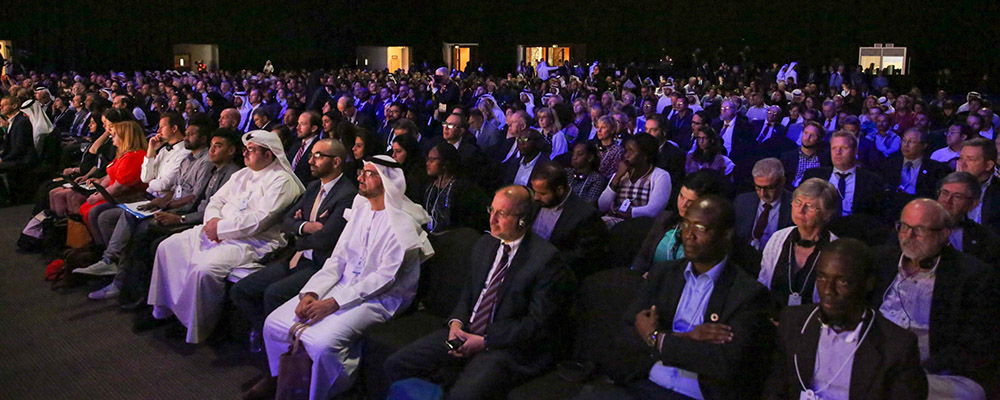
Delegates gather for the opening ceremony
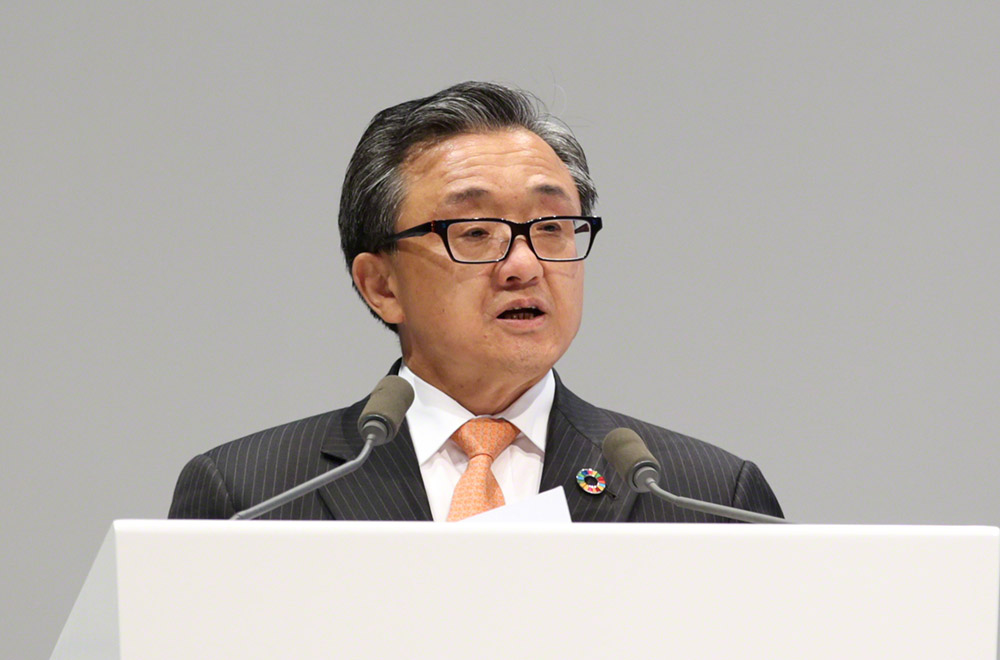
Liu Zhenmin, Under-Secretary-General, UN Department of Economic and Social Affairs (DESA)
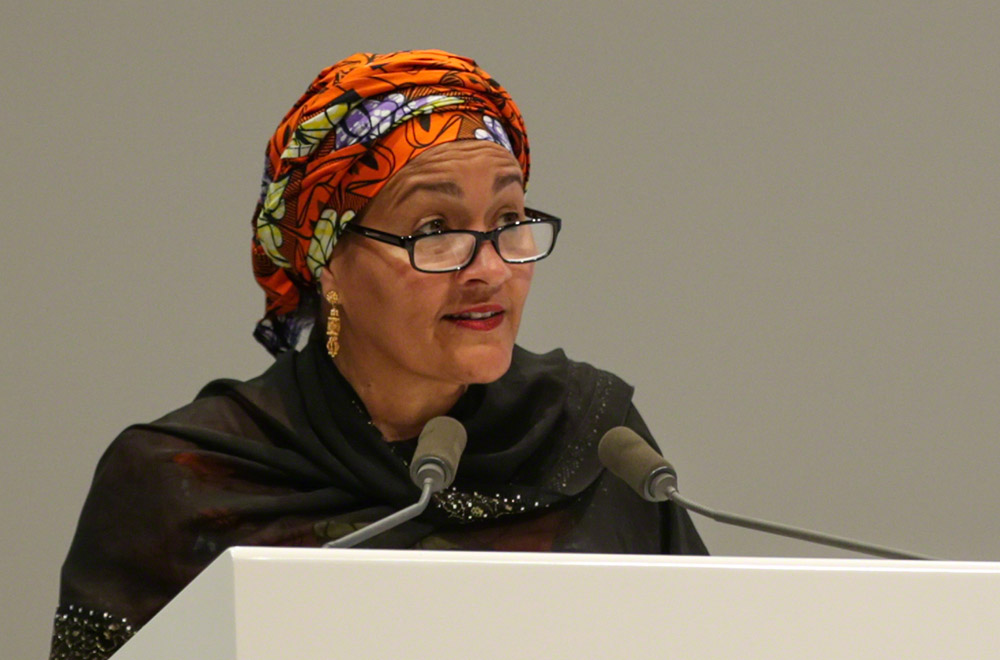
UN Deputy Secretary-General Amina J. Mohammed
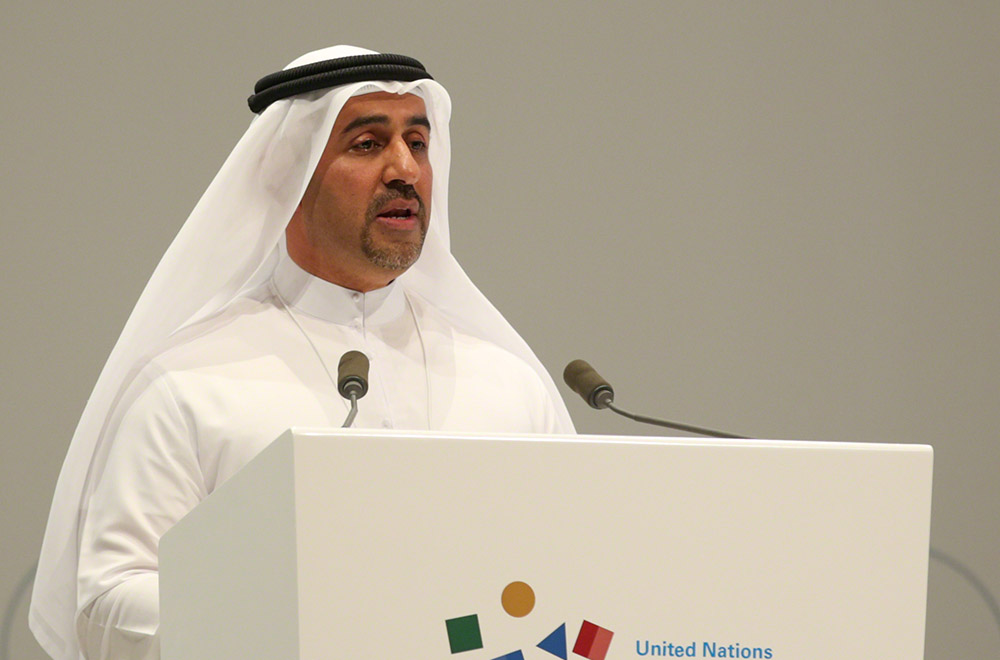
Abdulla Nasser Lootah, Director General, Federal Competitiveness and Statistics Authority, UAE
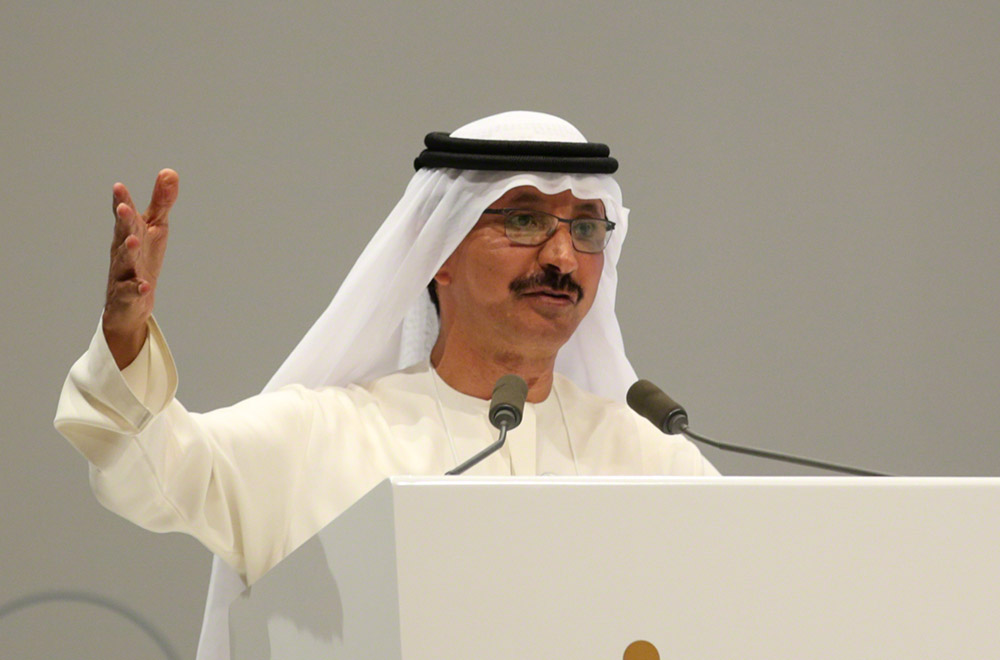
Sultan Ahmed bin Sulayem, CEO, DP World
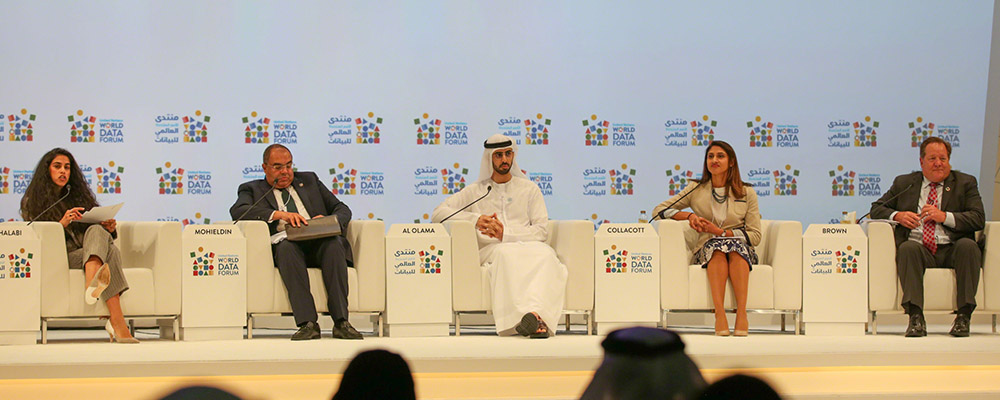
Panel speakers for "Harnessing the power of data for sustainable development" (L-R): Mona Chalabi, The Guardian US; Mahmoud Mohieldin, World Bank Group; Omar Sultan Al Olama, Minister of State for Artificial Intelligence, UAE; Harpinder Collacott, Executive Director, Development Initiatives; and Clint Brown, Esri
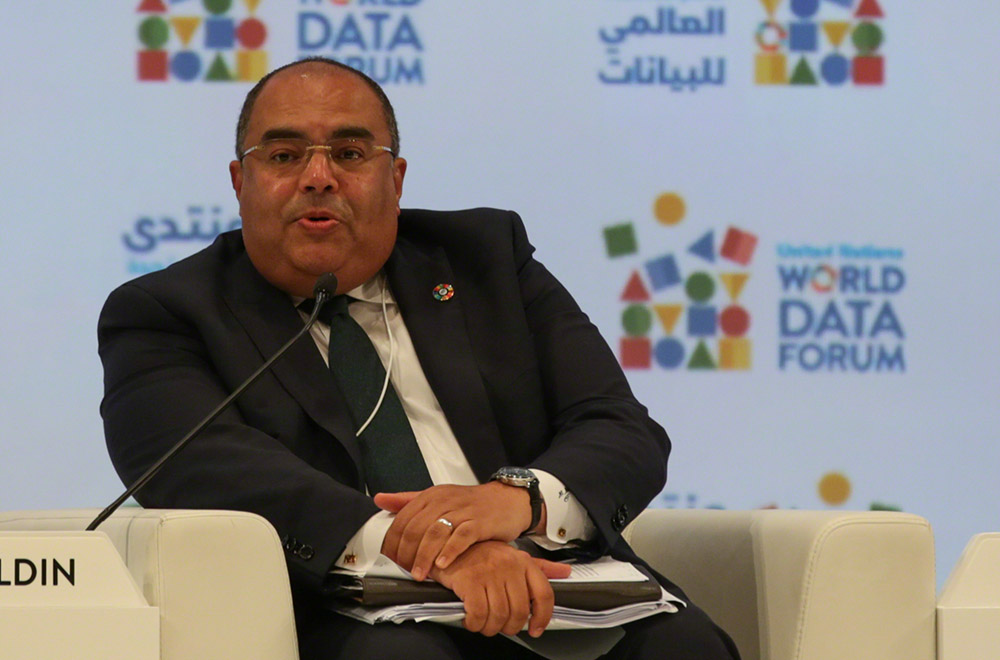
Mahmoud Mohieldin, World Bank Group
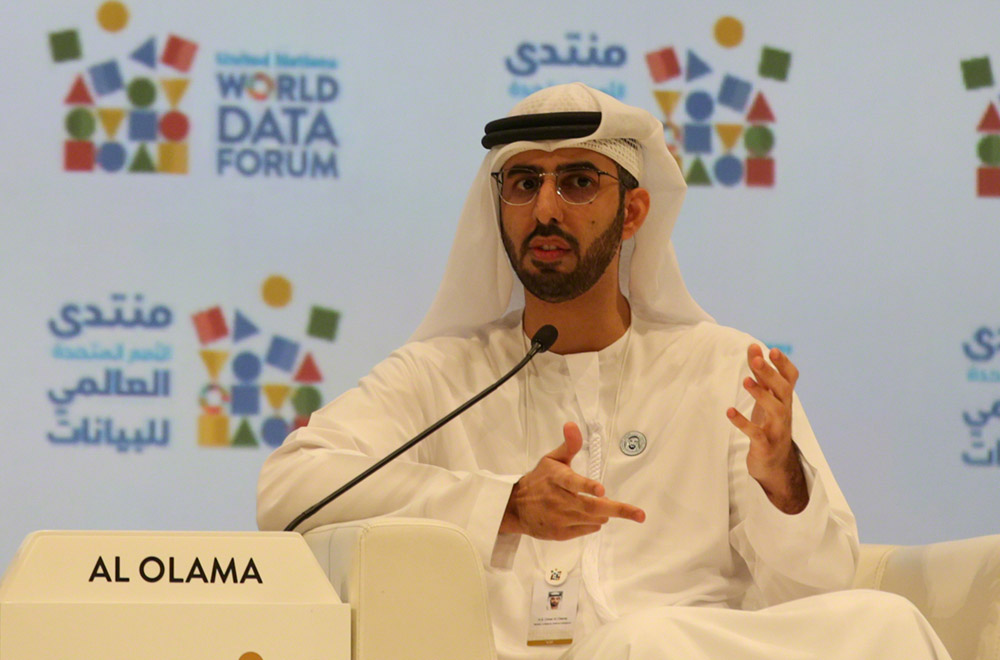
Omar Sultan Al Olama, Minister of State for Artificial Intelligence, UAE
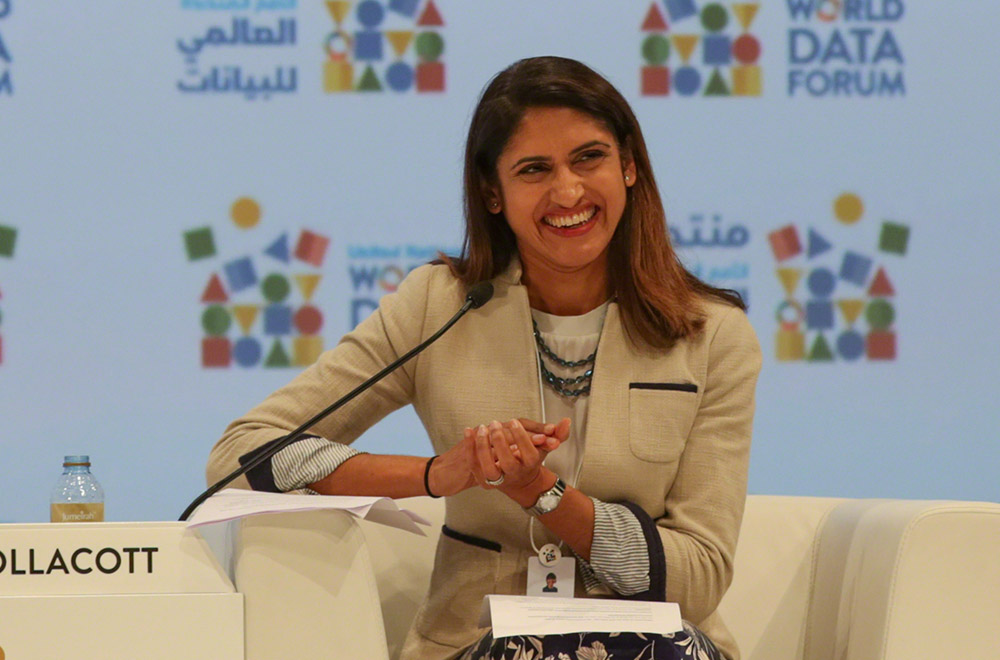
Harpinder Collacott, Executive Director, Development Initiatives
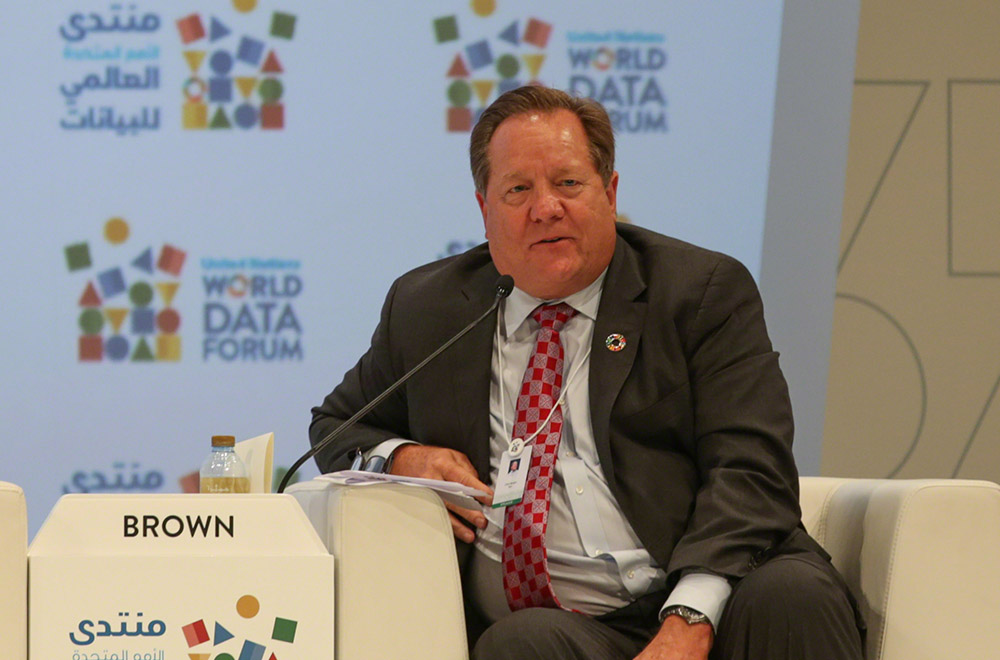
Clint Brown, Esri
Parallel Sessions Throughout the Day
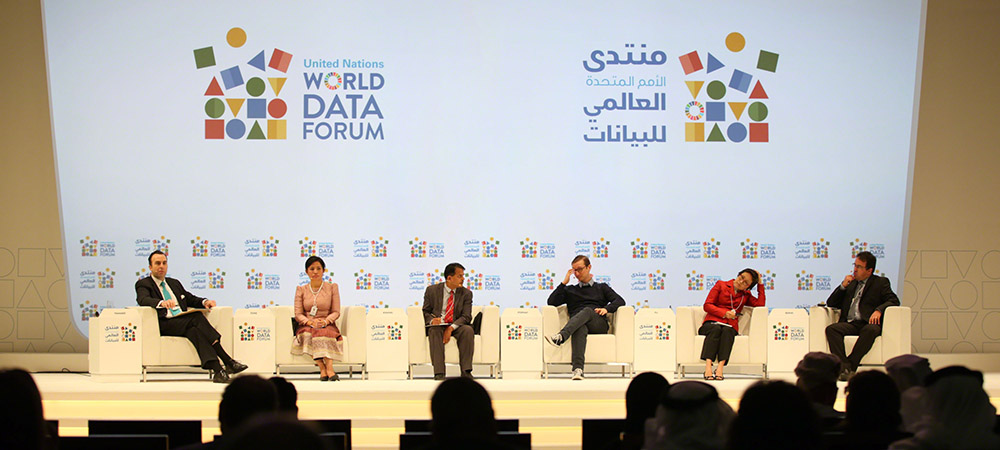
Panel speakers for the session "New Approaches to Data Governance in the 21st Century: A View from Countries, Multilaterals, and Foundations" (L-R): Craig Hammer, World Bank; Phetsamone Sone, Lao Statistics Bureau; Gopi Krishna Khanal, National Natural Resource and Fiscal Commission (NNRFC), Nepal; Jake Porway, Executive Director, DataKind; Haishan Fu, World Bank’s Development Data Group; and Fernando Perini, Canada’s International Development Research Centre (IDRC)
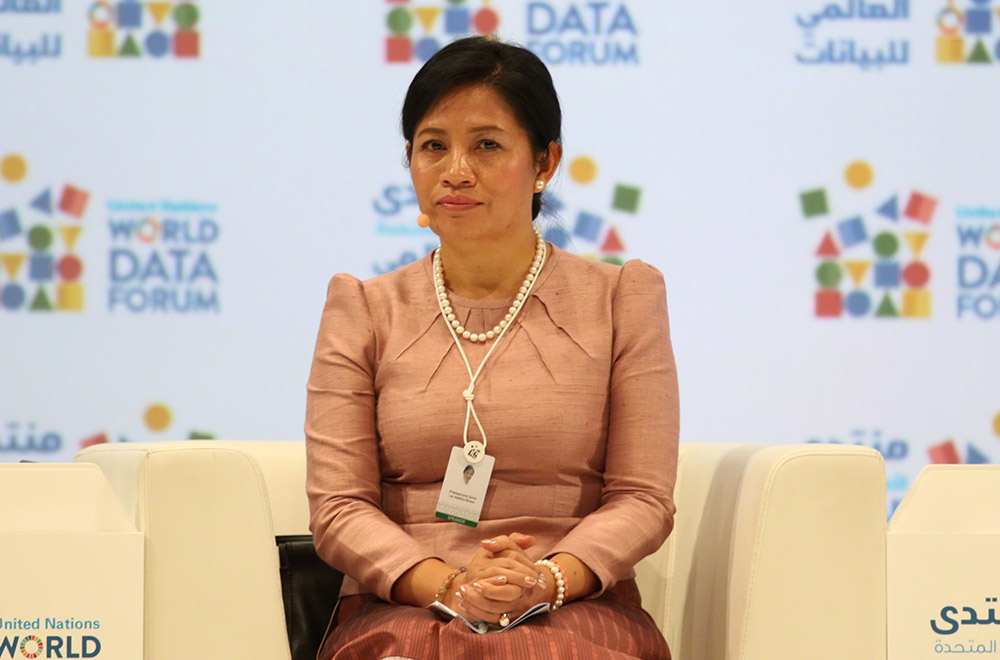
Phetsamone Sone, Lao Statistics Bureau
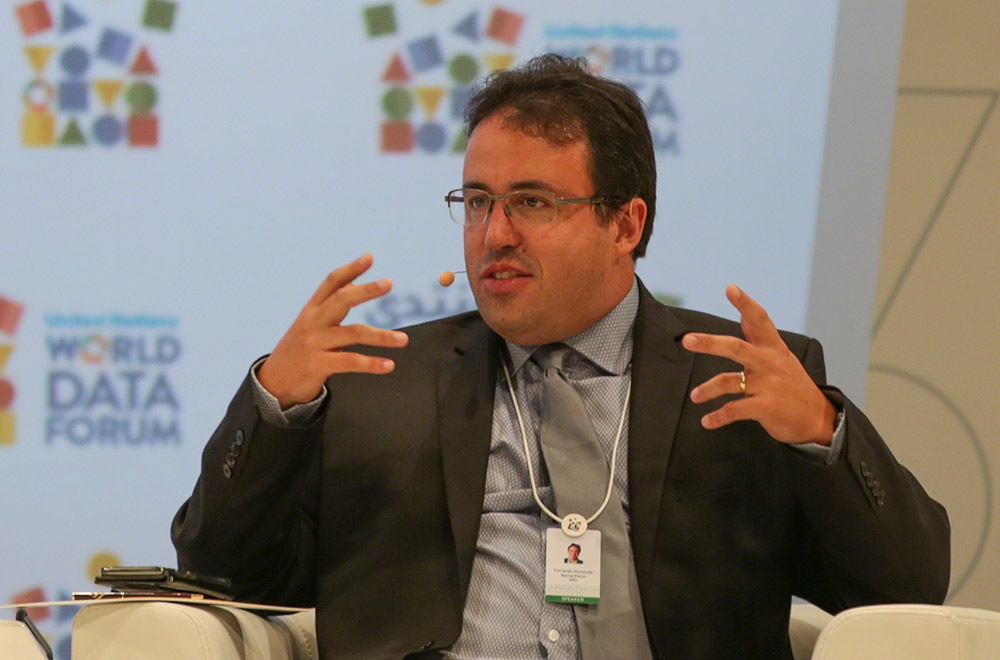
Fernando Perini, IDRC
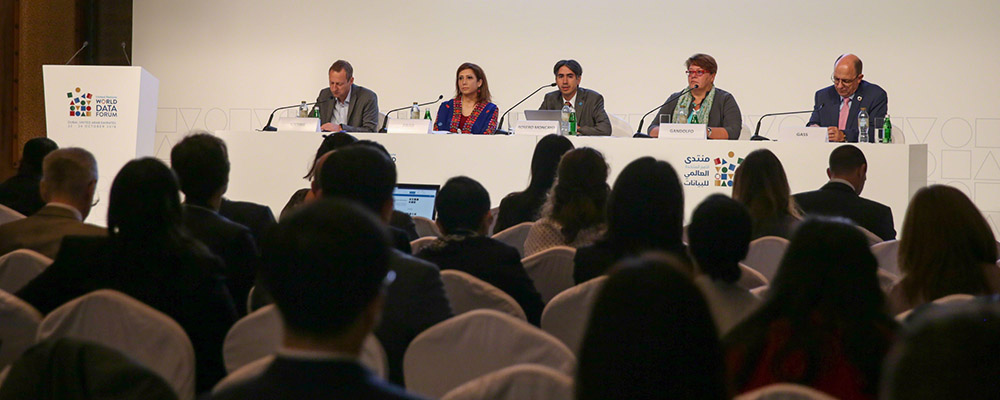
Panel speakers for the session "The role of National Statistical Offices in enhancing Capacity Development of National Statistical Systems-experiences and lessons learned" (L-R): Johannes Jütting, Partnership in Statistics for Development in the 21st Century (PARIS21); Ola Awad, President, Palestinian Central Bureau of Statistics (PCBS); José Rosero Moncayo, Food and Agricultural Organization of the UN (FAO); Marina Gandolfo, Italian National Institute of Statistics (ISTAT); and Thomas Gass, Swiss Agency for Development and Cooperation (SDC)
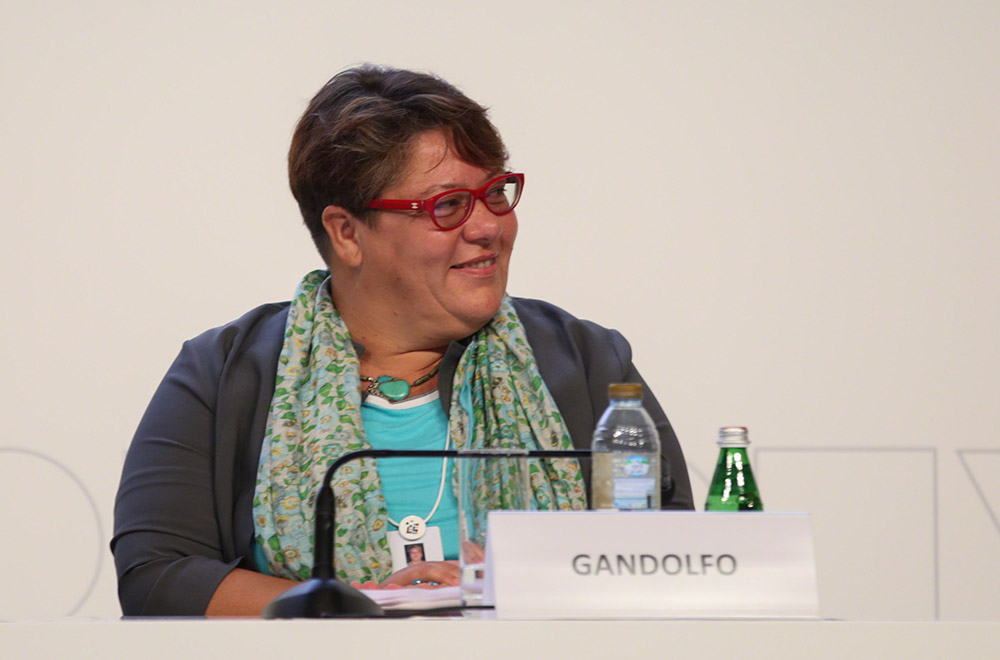
Marina Gandolfo, ISTAT
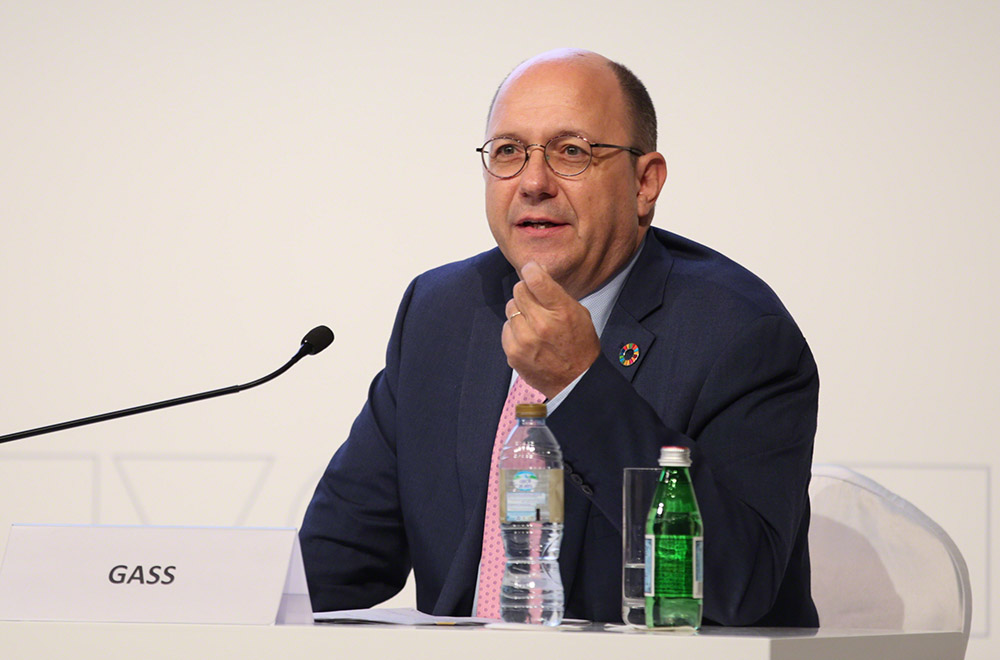
Thomas Gass, SDC
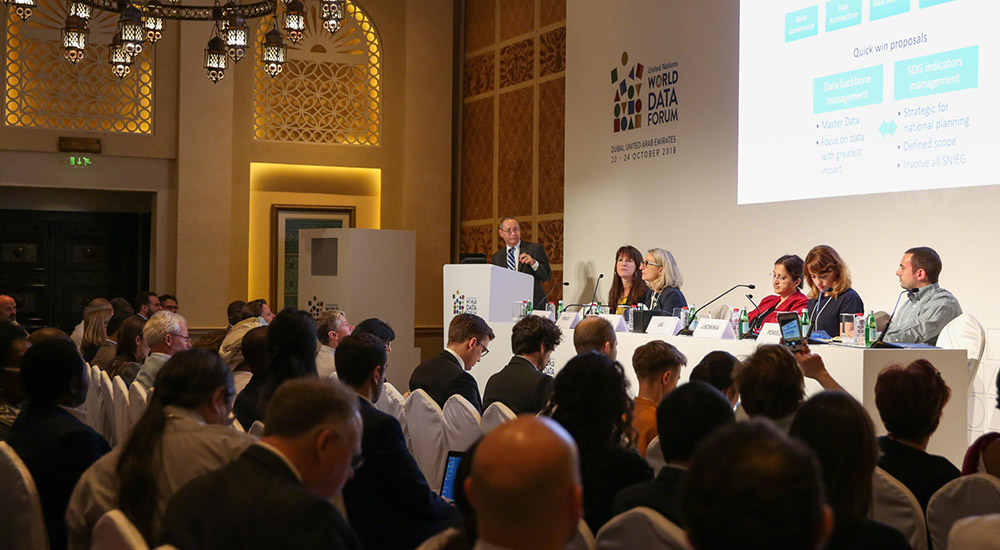
Panel speakers for the session "Data interoperability in action: Enabling data integration for sustainable development across ecosystems" (L-R): Enrique Ordaz, National Institute of Statistics and Geography (INEGI), Mexico; Claire Melamed, Executive Director, Global Partnership for Sustainable Development Data; Francesca Perucci, UN Statistics Division; Shaida Badiee, Managing Director, Open Data Watch; Beata Lisowska, Development Initiatives; and Josh Powell, Development Gateway

Enrique Ordaz, INEGI, Mexico
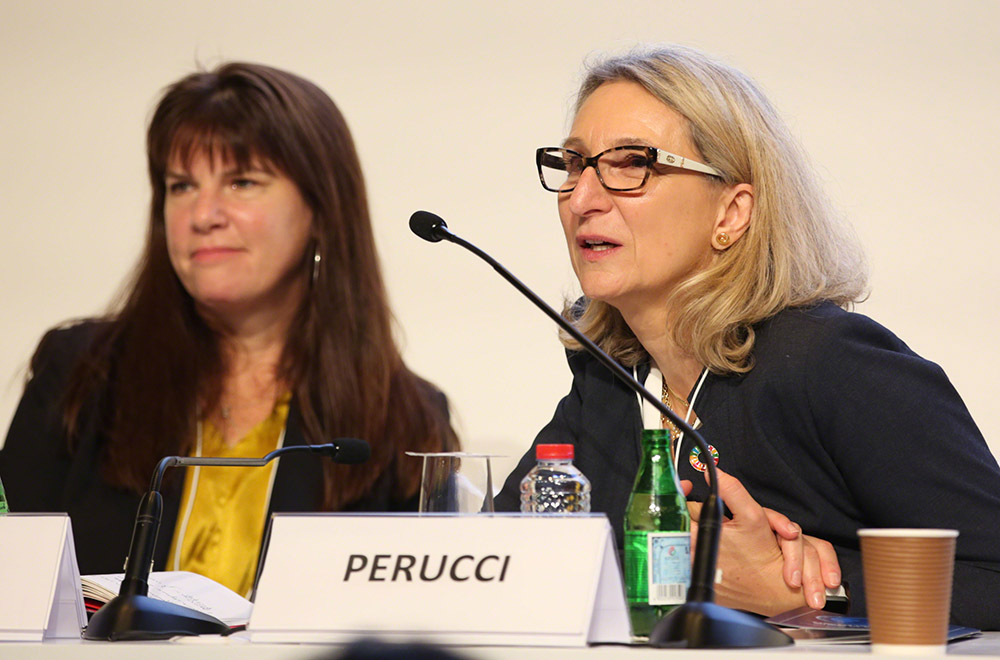
Claire Melamed, Executive Director, Global Partnership for Sustainable Development Data, and Francesca Perucci, UN Statistics Division
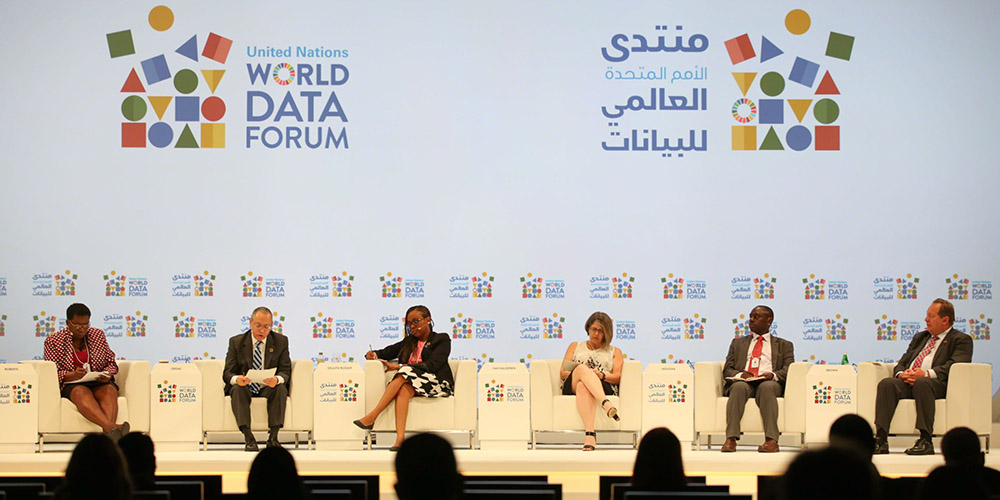
Panel speakers for the session "Monitoring the SDGs 3 years in: How are we doing?" (L-R): Gatlin Roberts, Chief Statistician, Statistical Office of Saint Vincent and the Grenadines; Enrique Ordaz, INEGI, Mexico; Leesha Delatie-Budair Statistical Institute of Jamaica (STATIN); Gemma Van Halderen, Director, Statistics Division, UN Economic and Social Commission for Asia and the Pacific (ESCAP); Robert P. Ndugwa, UN Human Settlements Programme (UN-Habitat); and Clint Brown, Esri

Gemma Van Halderen, Director, Statistics Division, UNESCAP
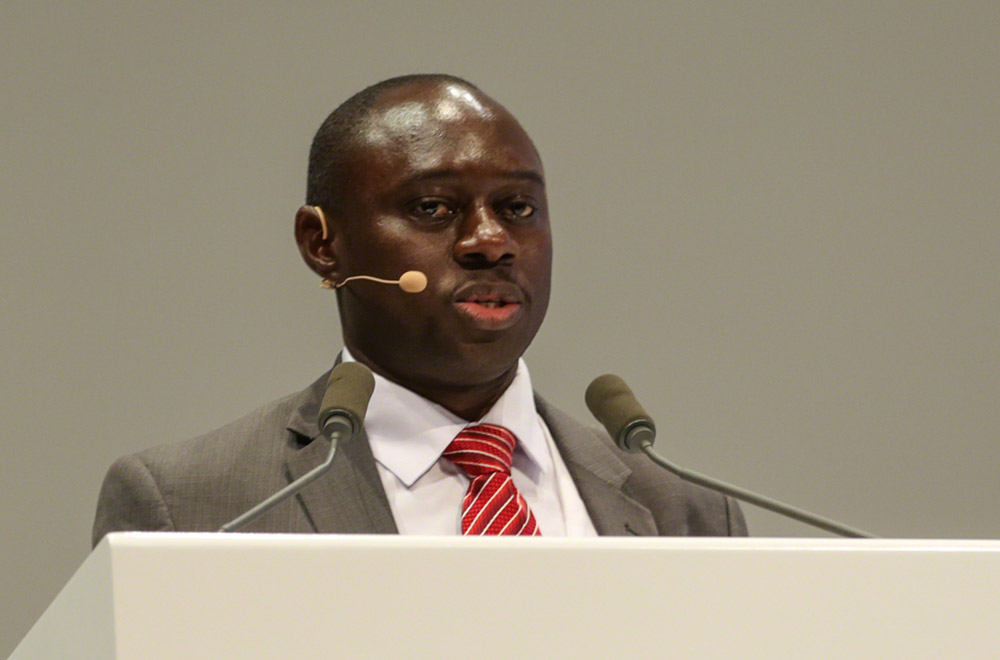
Robert P. Ndugwa, UN-Habitat

Panel speakers for the session "Mind the Gap: Traditional and Non-traditional approaches to closing the gender data gap"
(L-R): Eric Swanson, Open Data Watch; Emily Courey Pryor, Executive Director, Data2X; Lauren Pandolfelli, UN Children's Fund (UNICEF); Stefaan Verhulst, Governance Laboratory @NYU (GovLab); Francesca Grum, Chief, Social and Gender Statistics Section, UN Statistics Division (UNSD); Zacarias Duarte Castellón, Supreme Court of Justice, Nicaragua; María Lily Rodríguez, UNICEF Nicaragua; Jin Hong, National Bureau of Statistics, China
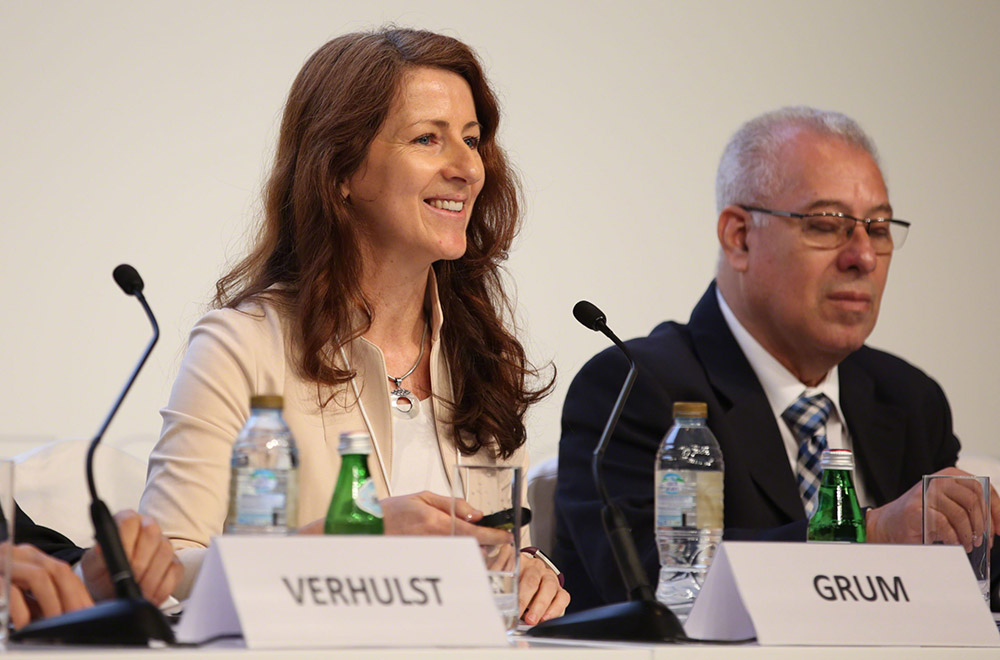
Francesca Grum, Chief, Social and Gender Statistics Section, UNSD
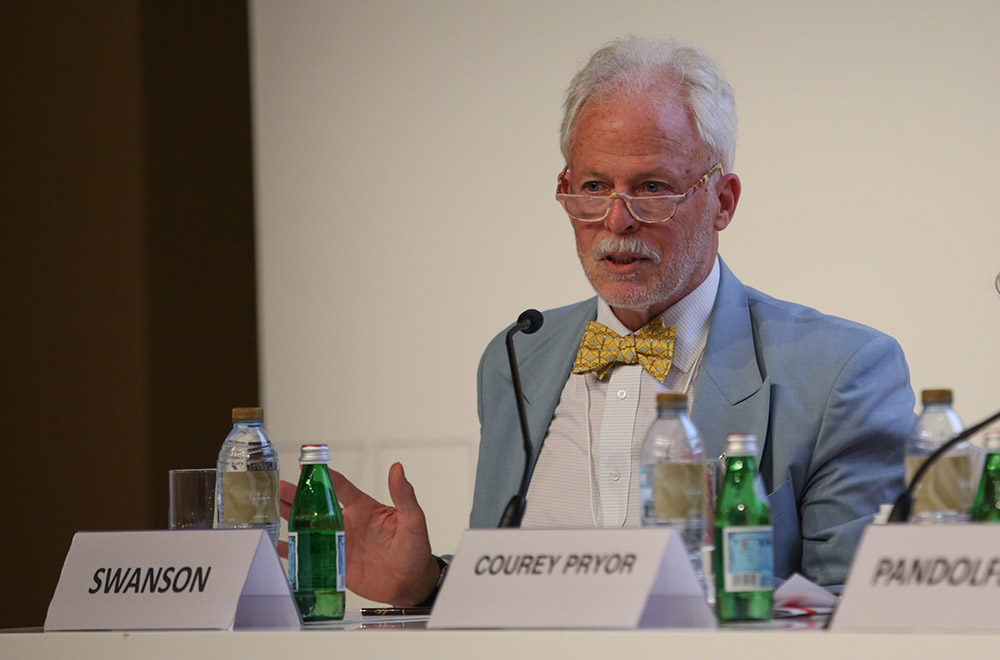
Eric Swanson, Open Data Watch
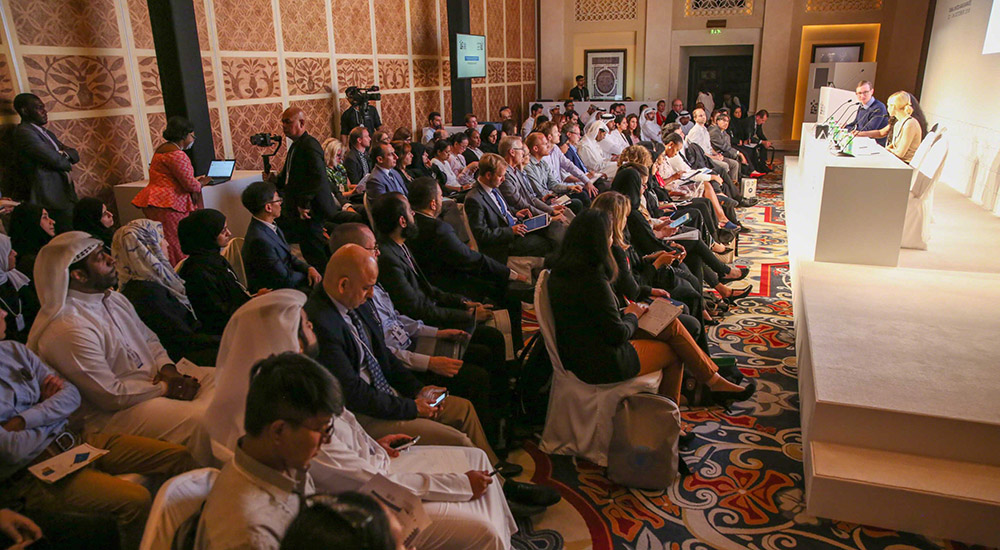
Parallel session on "The Data Revolution: Artificial Intelligence (AI) for Sustainable Development" (L-R): Jake Porway, Executive Director, DataKind; Devangana Khokhar, ThoughtWorks; Aimee Barciauskas, Development Seed
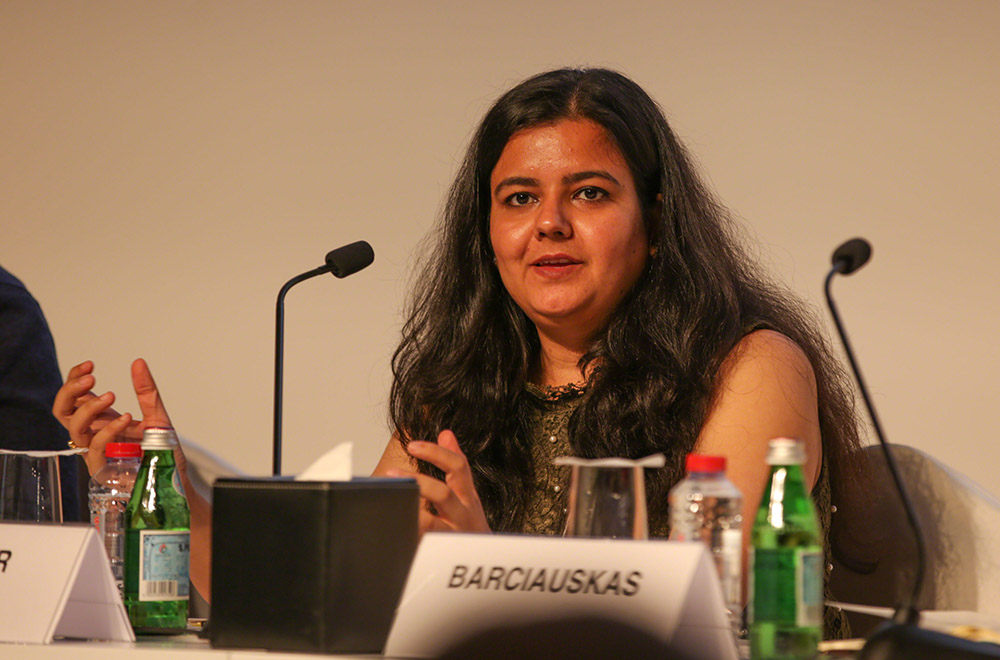
Devangana Khokhar, ThoughtWorks
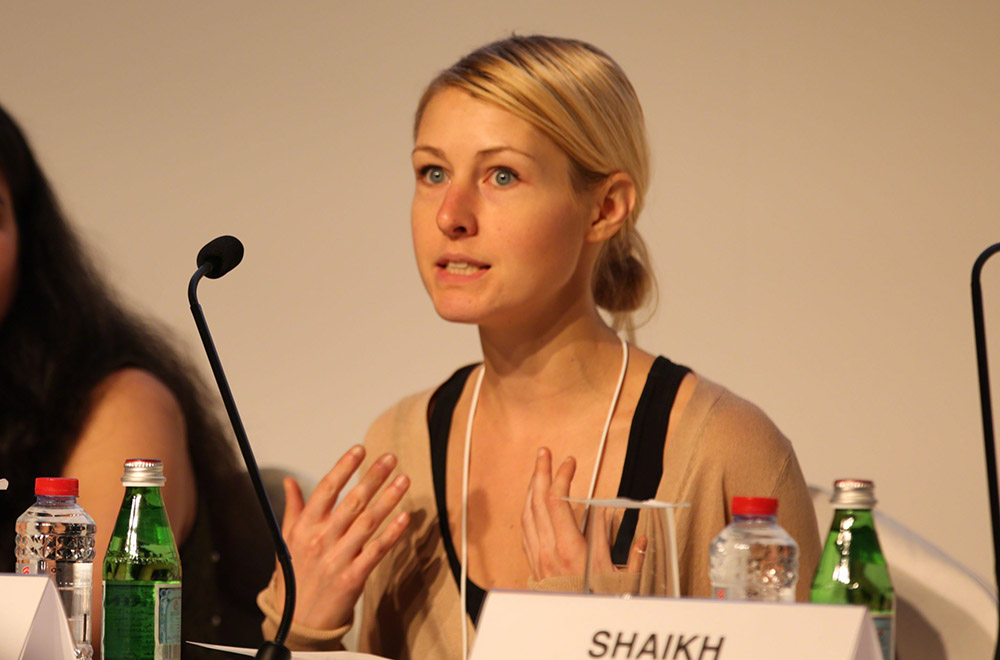
Aimee Barciauskas, Development Seed
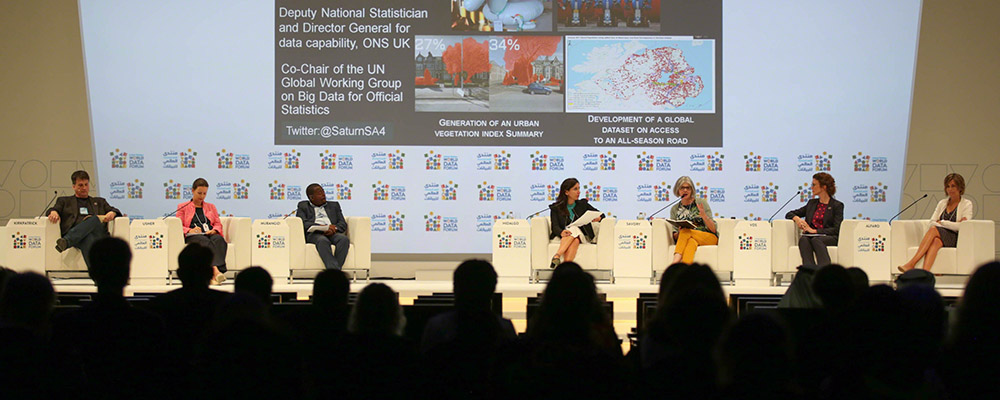
Panel speakers for the session "Big Data for Sustainable Development: what does it take to get to the next level?" (L-R): Robert Kirkpatrick, Director, UN Global Pulse; Derval Usher, Pulse Lab Jakarta; Martin Gordon Mubangizi, Pulse Lab Kampala; Paula Hidalgo-Sanchis, Pulse Lab Kampala; Heather Savory, Office for National Statistics, UK; Jeanine Vos; GSMA; and Elena Alfaro BBVA Group
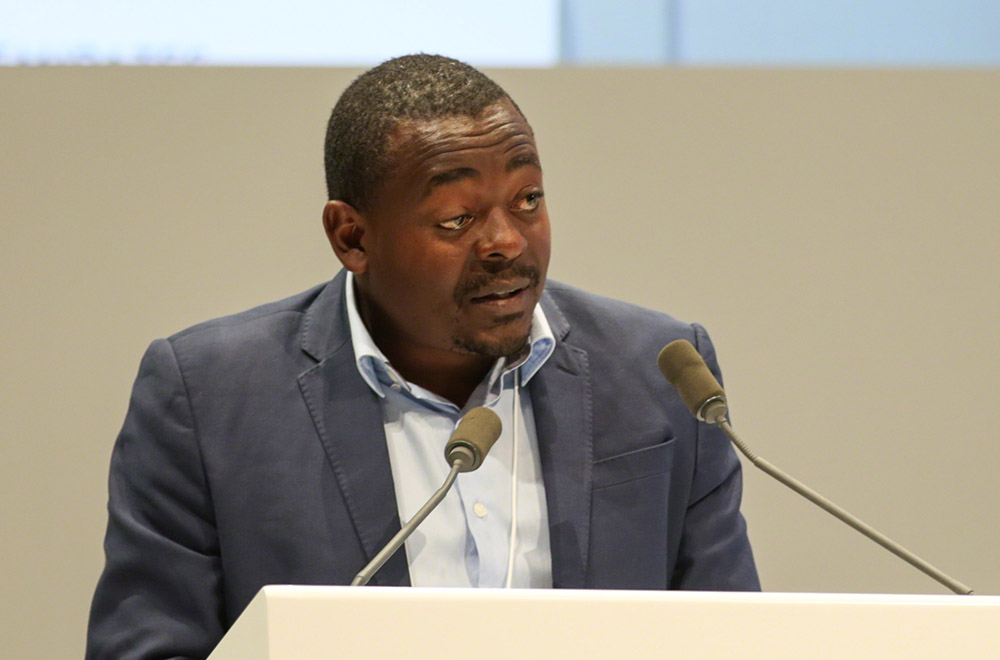
Martin Gordon Mubangizi, Pulse Lab Kampala
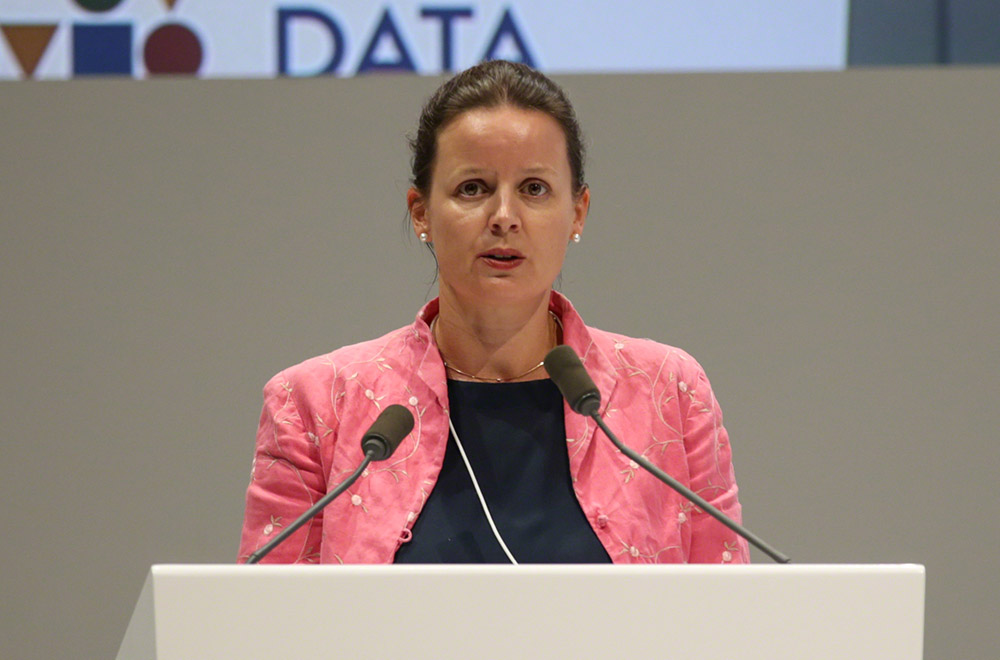
Derval Usher, Pulse Lab Jakarta
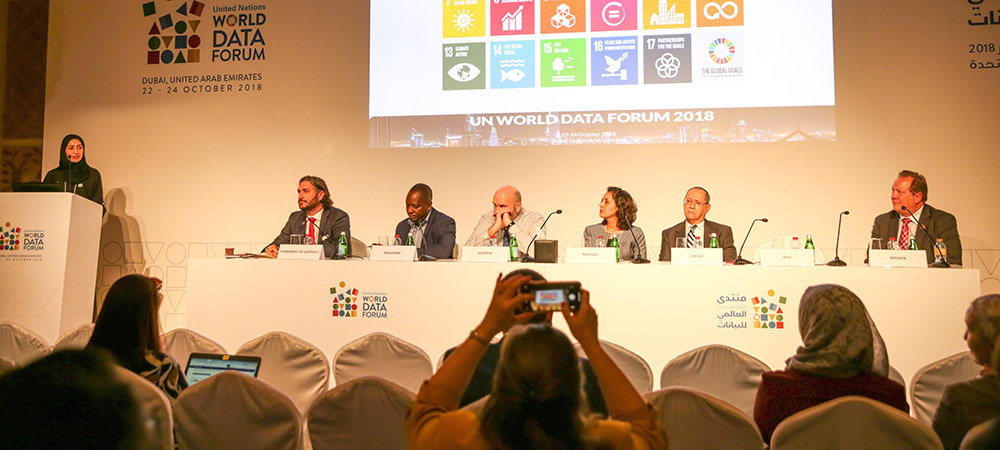
Panel speakers for the session "Federated System for the SDGs: Global and National Open SDG Data Hubs" (L-R): Hanan Ahli, Federal Competitiveness and Statistics Authority, UAE; Sergio Fernández de Córdova, Chairman and Founder, PVBLIC Foundation; Benedict Mugambi, Tanzania National Bureau of Statistics; Paul Morrin, Central Statistics Office, Ireland; Nafir Massad, Palestinian Central Bureau of Statistics; Enrique Ordaz, INEGI, Mexico; and Clint Brown, Esri
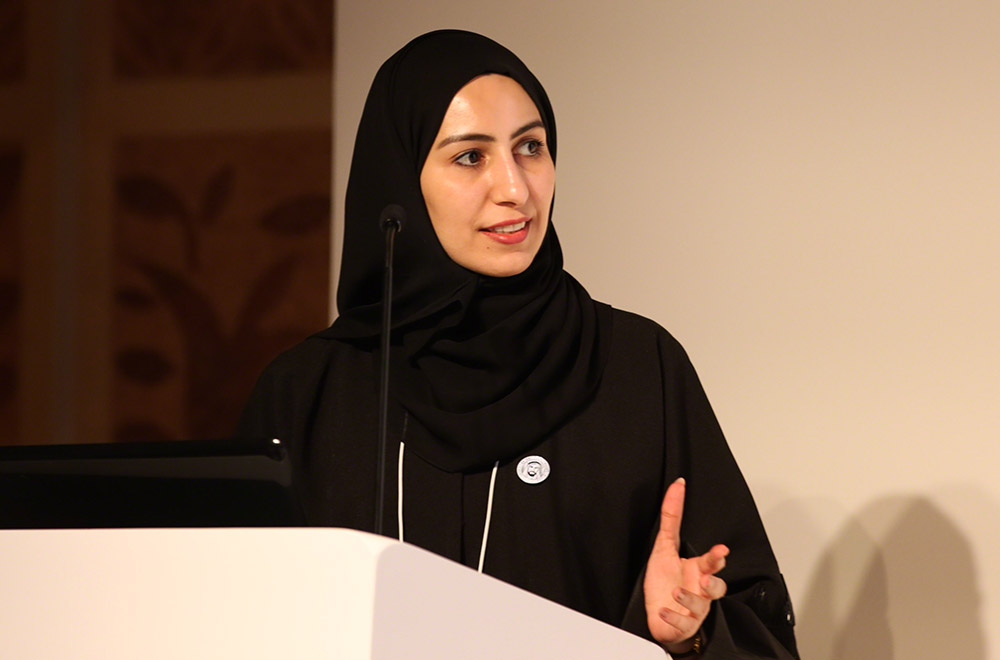
Hanan Ahli, Federal Competitiveness and Statistics Authority, UAE

Clint Brown, Esri
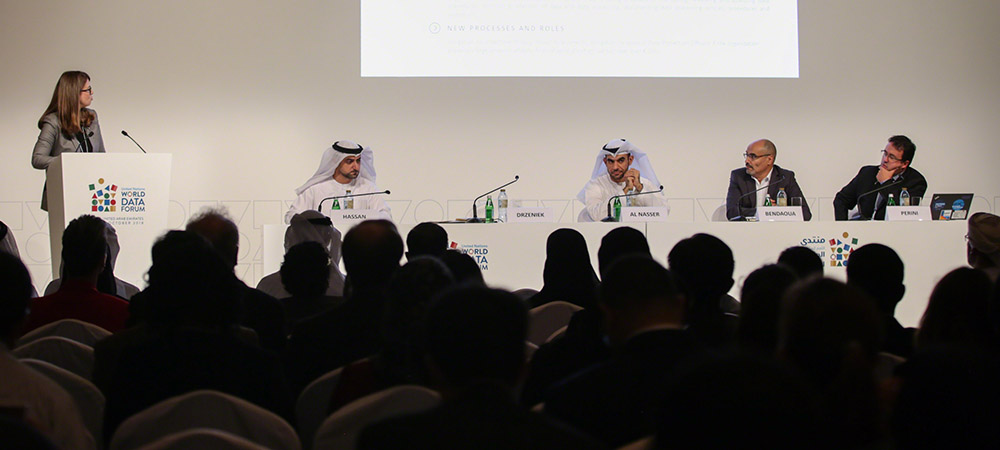
Panel speakers for the session "Open Data: But How Open?" (L-R): Margareta Drzeniek, HORIZON Group; Mohammad Hassan, Federal Competitiveness and Statistics Authority, UAE; Younus Al Nasser, Assistant Director General, Smart Dubai; Abdel Wahed Bendaqua, Google; and Fernando Perini, Canada’s International Development Research Centre (IDRC)
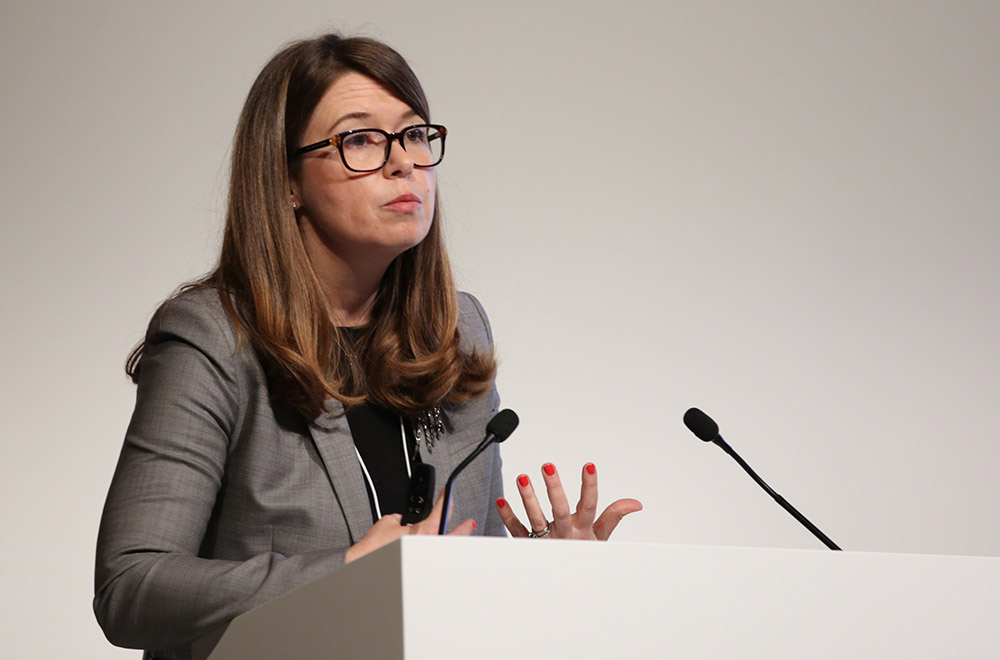
Margareta Drzeniek, HORIZON Group

Younus Al Nasser, Assistant Director General, Smart Dubai
Afternoon Plenary
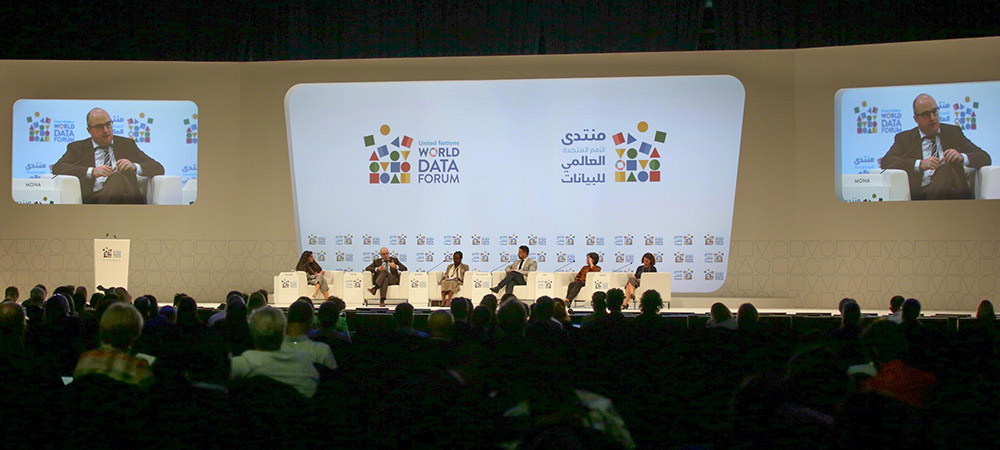
View of the dais during the afternoon plenary "Improving Migration Statistics – the way forward"
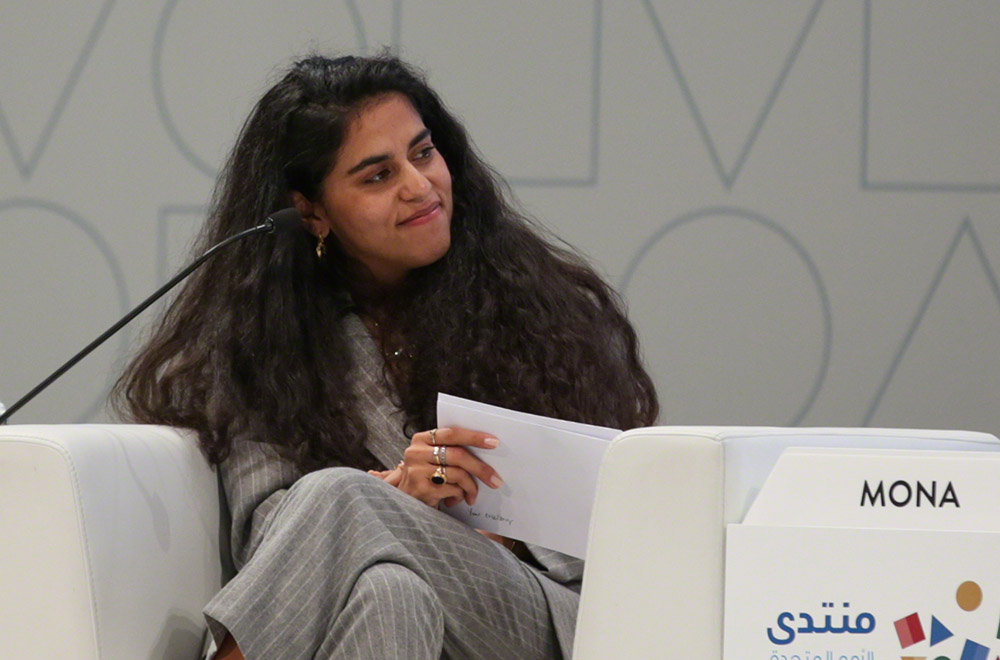
Mona Chalabi, The Guardian US
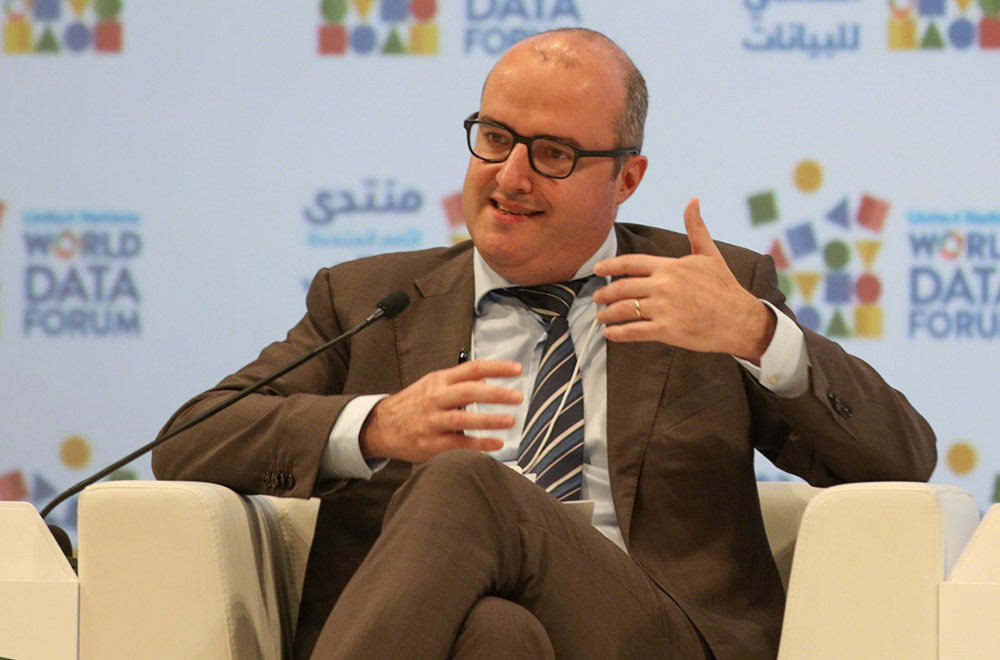
Pietro Mona, SDC
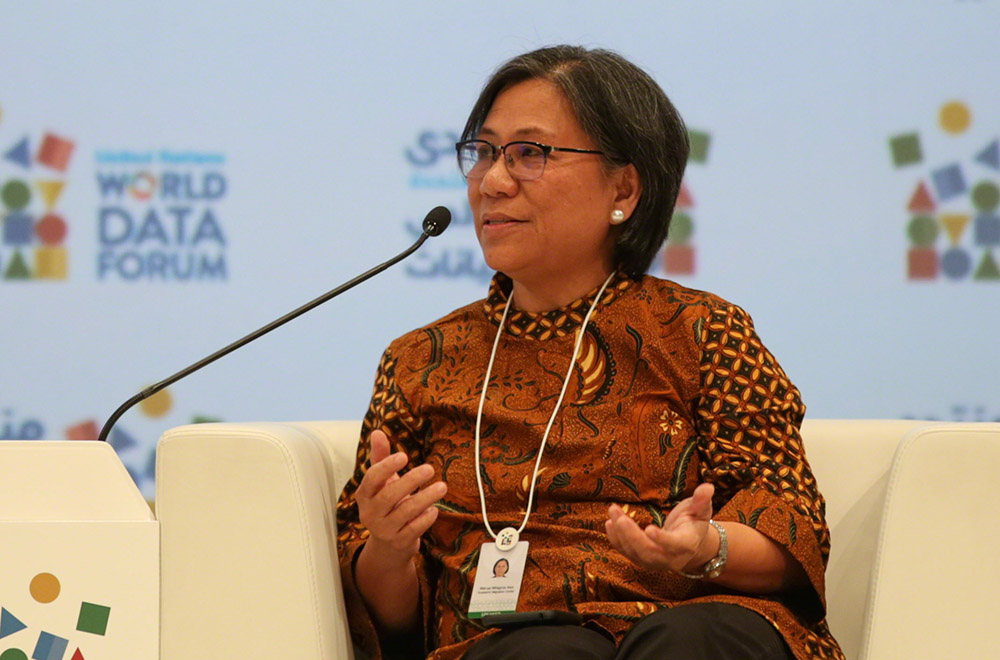
Maruja M.B. Asis, Scalabrini Migration Center
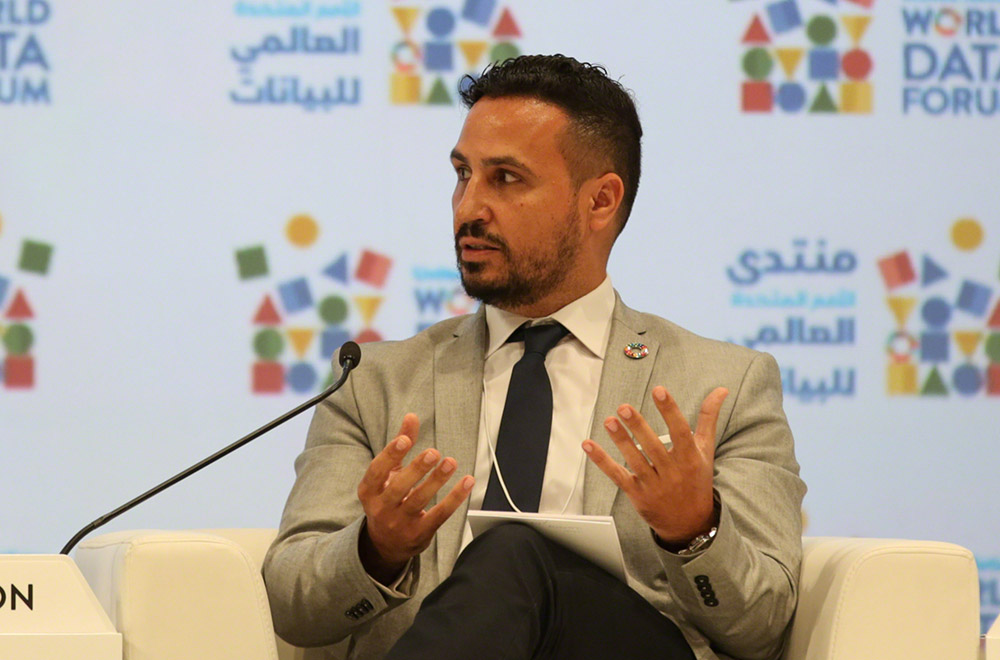
Pedro de Alarcon, Big Data for Social Good, Telefónica
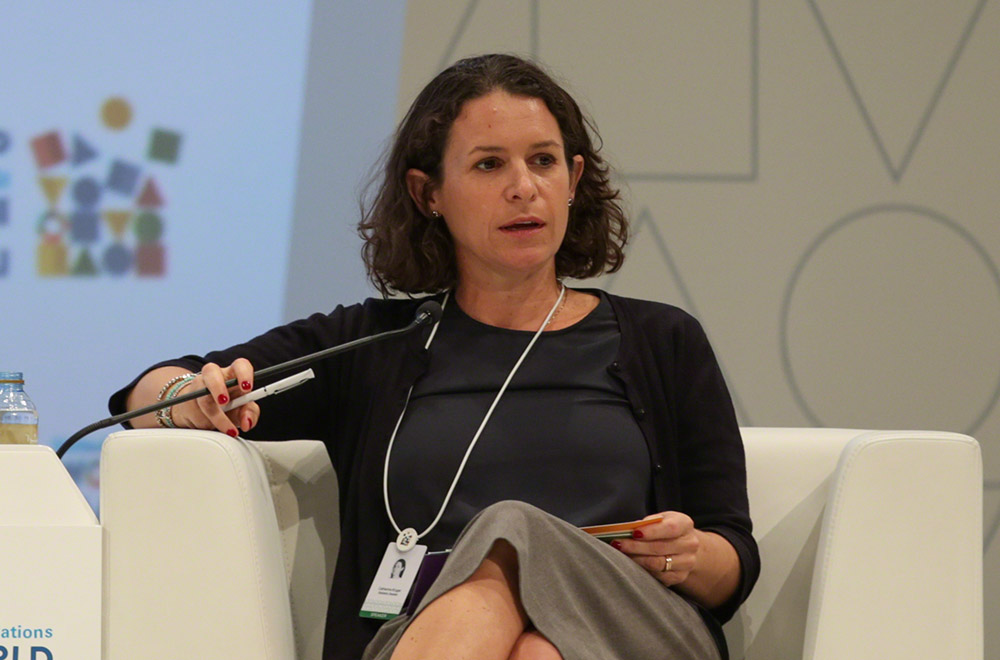
Cathy Krüger, International Cooperation Office, Statistics Sweden
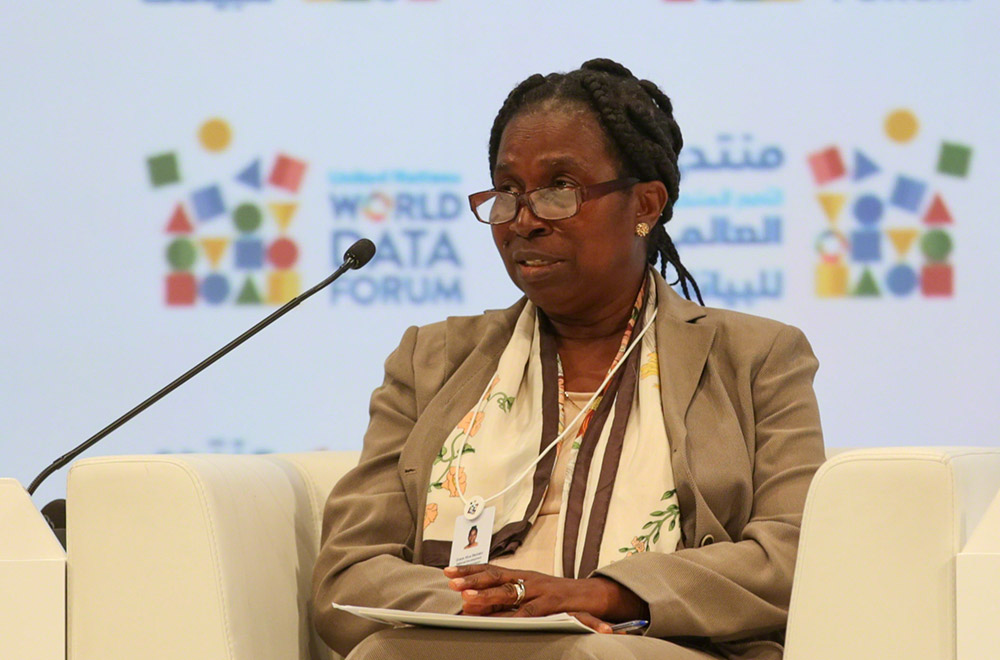
Grace Bediako, Chairman, Statistical Service Board, Ghana
Around the Venue
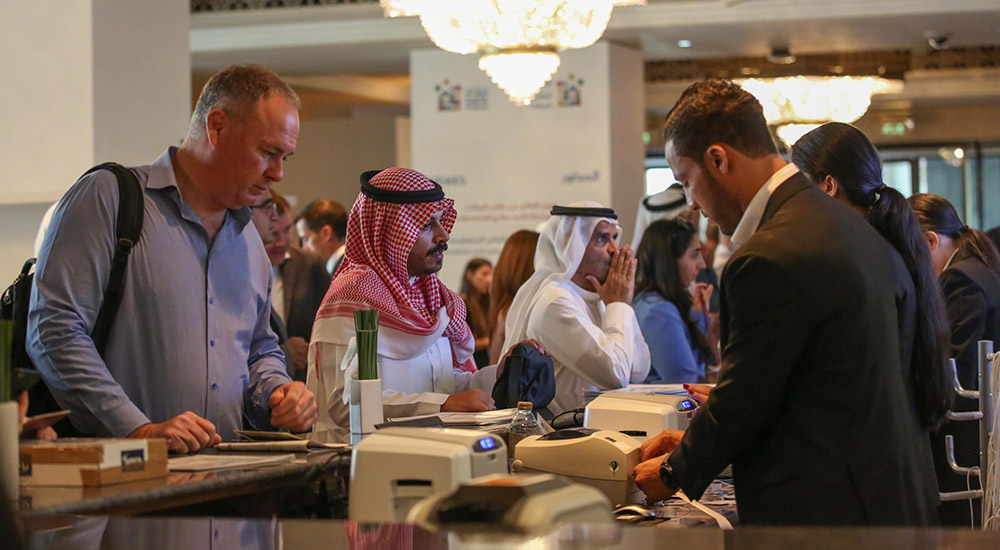
Delegates register at the start of the conference
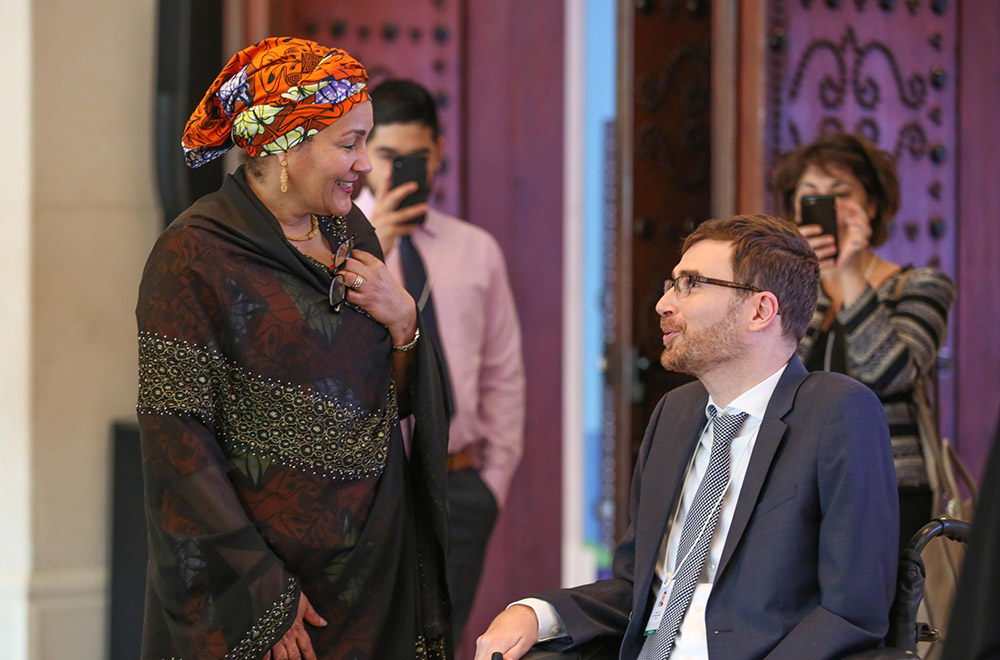
UN Deputy Secretary-General Amina J. Mohammed speaks with a delegate
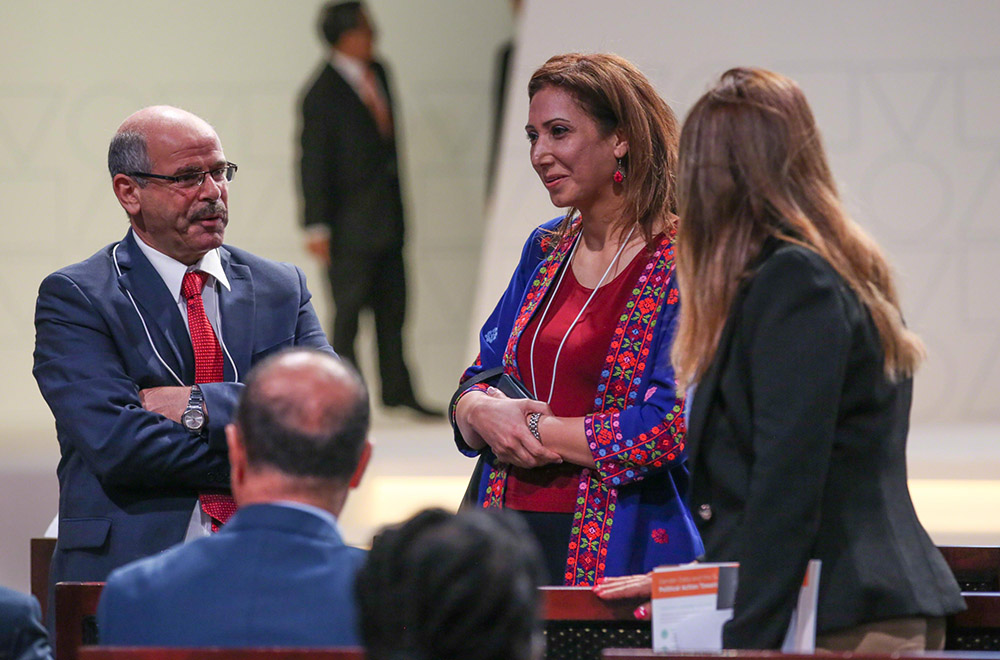
Ola Awad (center), President, PCBS, speaks with delegates
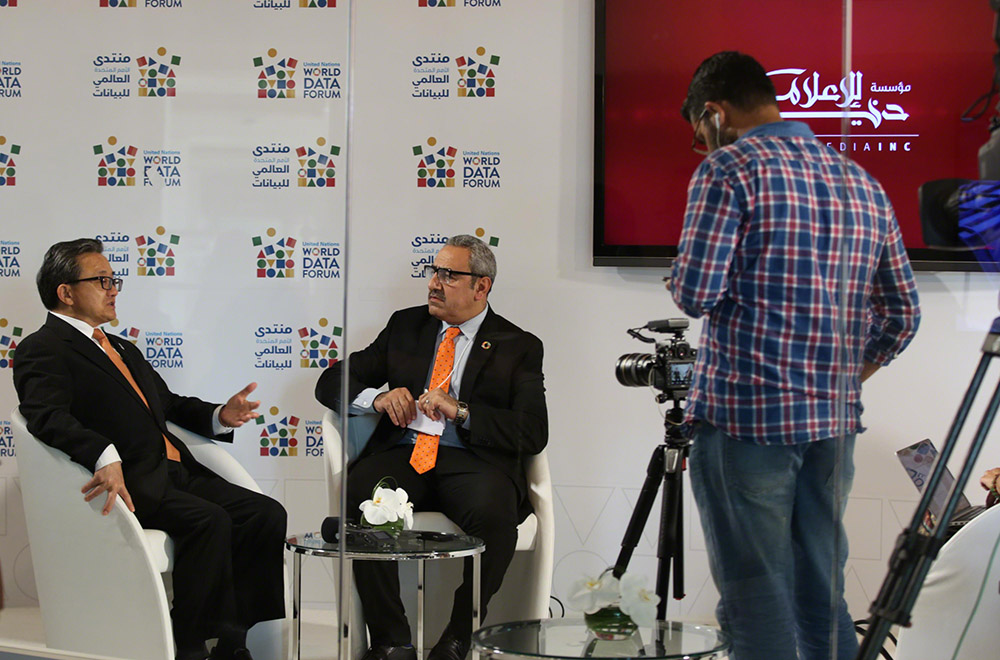
Liu Zhenmin, UN Under-Secretary-General, UNDESA, during an interview
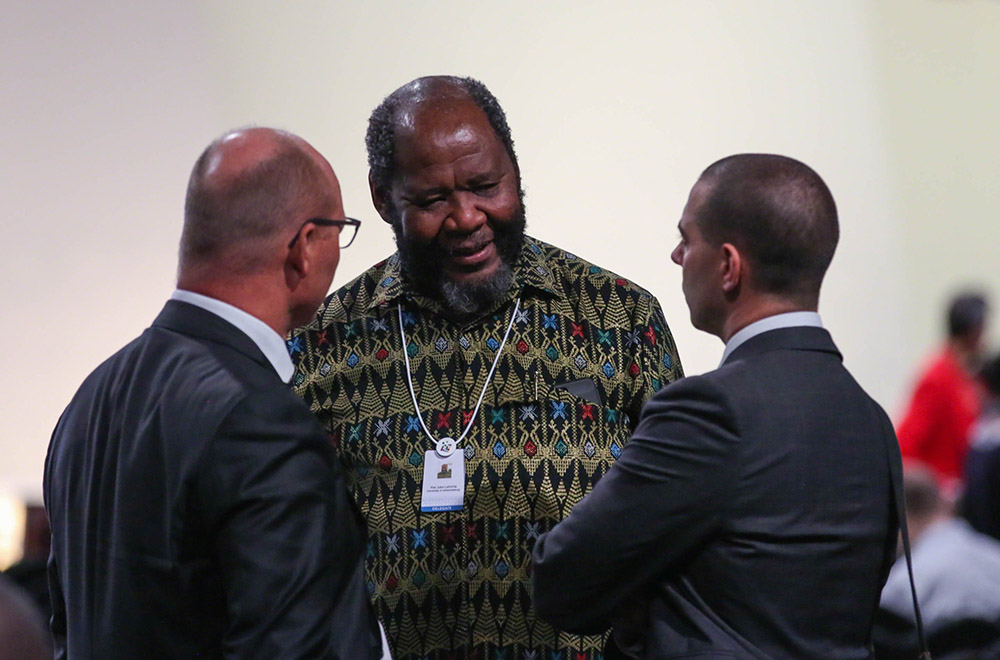
Pali Lehohla, Former Statistician-General, Statistics South Africa, speaks with delegates
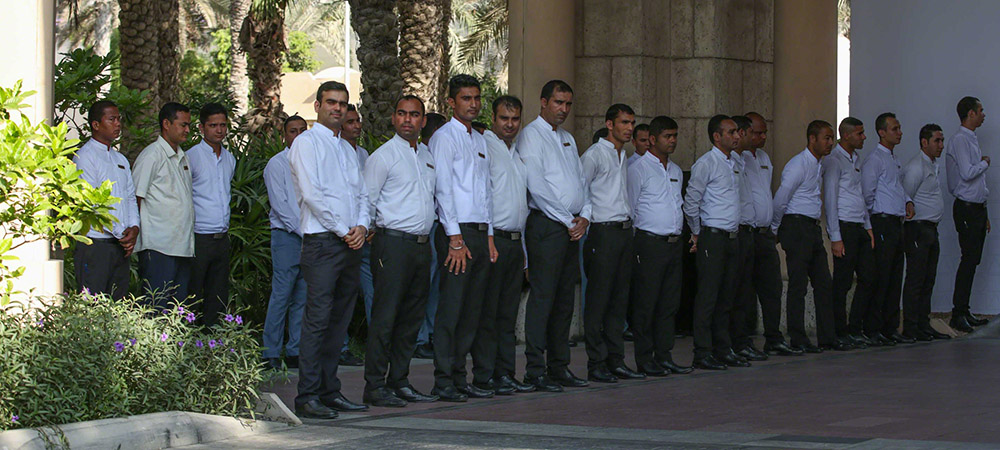
Conference staff welcome delegates to the venue
Delegates between sessions
A 'traffic light robot' on display in the exhibition area is an example of how technology can be used in the police force

 The second UN World Data Forum opened on Monday, 22 October 2018. During the opening plenary, Liu Zhenmin, Under-Secretary-General, UN Department of Economic and Social Affairs, reflected on the value of the Forum to implementing the SDGs and guiding international development policy through the successful integration of economic, social and environmental data. He highlighted the importance of removing barriers to new data sources and modernizing national statistical systems to meet new data demands. High-level statements were offered by Abdulla Nasser Lootah, Director General, Federal Competitiveness and Statistics Authority, United Arab Emirates, and Amina Mohammed, UN Deputy Secretary-General. Lootah thanked Sheikh Mohammed bin Rashid Al Maktoum, Vice-President and Prime Minister of the UAE and Ruler of Dubai, for participating in the session, and highlighted that the UAE is working to ensure the best possible data for driving the Fourth Industrial Revolution, to ensure that it involves the best innovation possible. Mohammed highlighted that robust and accessible data and information can provide a host of benefits, including the ability of citizens to monitor how their governments are performing and to hold decision-makers to account. She called attention to a number of related UN projects on data, including the Open Data Hub for the SDGs, the Global SDG indicator website, and UN Global Pulse. She also stressed that UN country teams of the future must be equipped with the skills and capacities necessary to harness the opportunities offered by all types of data and innovation. During an opening roundtable dialogue on harnessing the power of data to meet the data demands of the 2030 Agenda, Mahmoud Mohieldin, World Bank Group, highlighted the 2018 SDG Atlas, which maps, charts and provides stories related to the SDGs and draws on the World Development Indicators, a database of over 1400 indicators for more than 220 economies with data going back 50 years. Omar Al Olama, Minister of State for Artificial Intelligence, noted that meteorological and climate change data amounts to 100 million gigabytes per day, and said it would take scientists over one hundred years to analyze. He said this scenario demonstrates humanity’s race against time in the use of data. Harpinder Collacott, Development Initiatives, underscored the value of policymakers at the national and sub-national levels in determining data investments to ensure informed policies for decision making. Clint Brown, Esri, called attention to the emerging opportunities to bring together data from multiple systems as well as the possibilities to use large data sets with cloud systems. Nearly 2,000 registered participants participated in 30 parallel events during the first day, addressing topics ranging from big data to capacity building, data platforms, and community data collaborations.
The second UN World Data Forum opened on Monday, 22 October 2018. During the opening plenary, Liu Zhenmin, Under-Secretary-General, UN Department of Economic and Social Affairs, reflected on the value of the Forum to implementing the SDGs and guiding international development policy through the successful integration of economic, social and environmental data. He highlighted the importance of removing barriers to new data sources and modernizing national statistical systems to meet new data demands. High-level statements were offered by Abdulla Nasser Lootah, Director General, Federal Competitiveness and Statistics Authority, United Arab Emirates, and Amina Mohammed, UN Deputy Secretary-General. Lootah thanked Sheikh Mohammed bin Rashid Al Maktoum, Vice-President and Prime Minister of the UAE and Ruler of Dubai, for participating in the session, and highlighted that the UAE is working to ensure the best possible data for driving the Fourth Industrial Revolution, to ensure that it involves the best innovation possible. Mohammed highlighted that robust and accessible data and information can provide a host of benefits, including the ability of citizens to monitor how their governments are performing and to hold decision-makers to account. She called attention to a number of related UN projects on data, including the Open Data Hub for the SDGs, the Global SDG indicator website, and UN Global Pulse. She also stressed that UN country teams of the future must be equipped with the skills and capacities necessary to harness the opportunities offered by all types of data and innovation. During an opening roundtable dialogue on harnessing the power of data to meet the data demands of the 2030 Agenda, Mahmoud Mohieldin, World Bank Group, highlighted the 2018 SDG Atlas, which maps, charts and provides stories related to the SDGs and draws on the World Development Indicators, a database of over 1400 indicators for more than 220 economies with data going back 50 years. Omar Al Olama, Minister of State for Artificial Intelligence, noted that meteorological and climate change data amounts to 100 million gigabytes per day, and said it would take scientists over one hundred years to analyze. He said this scenario demonstrates humanity’s race against time in the use of data. Harpinder Collacott, Development Initiatives, underscored the value of policymakers at the national and sub-national levels in determining data investments to ensure informed policies for decision making. Clint Brown, Esri, called attention to the emerging opportunities to bring together data from multiple systems as well as the possibilities to use large data sets with cloud systems. Nearly 2,000 registered participants participated in 30 parallel events during the first day, addressing topics ranging from big data to capacity building, data platforms, and community data collaborations.









